Cars have been a huge part of culture for over a century, and with that has come a long list of slang terms to describe them.
Whether it’s a classic “jalopy,” a sleek “hot rod,” or a luxury “whip,” people have always found creative ways to talk about their rides.
Some terms are tied to specific eras, while others are still widely used today.
From everyday drivers to high-performance machines, this list covers 100 different slang words for cars.
Buckle up and take a ride through the fascinating world of automotive slang!
Slang For Car
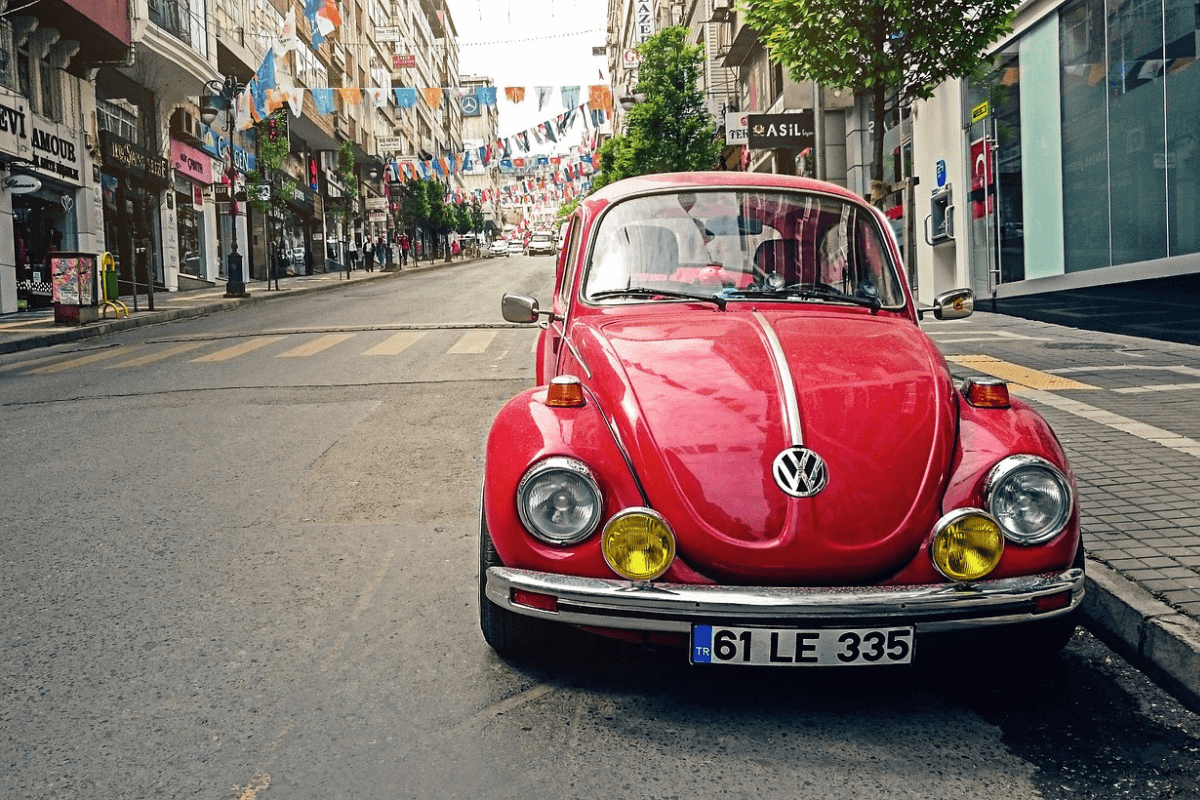
AMG
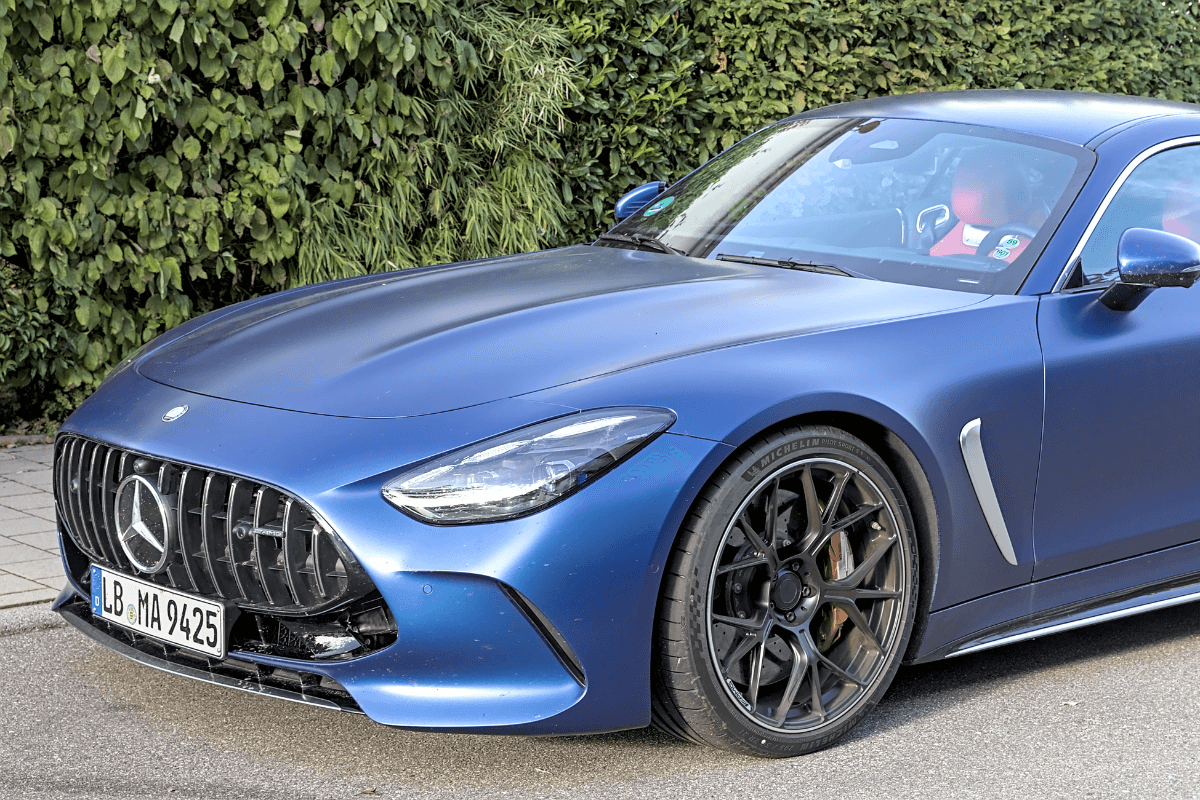
AMG is the name of Mercedes-Benz’s performance division, specializing in high-performance and luxury models.
Over time, the term “AMG” has become slang for any powerful or high-end car, even outside the Mercedes brand.
Car enthusiasts often use it to refer to cars with extra horsepower, aggressive styling, and top-tier engineering.
If someone says, “That’s an AMG,” it often implies that the car is a beast on the road.
While true AMGs have distinct badging and modifications, the term has expanded in car culture to mean any vehicle with impressive speed and handling.
Examples in sentences:
- “That AMG roars like a lion when you hit the gas!”
- “He pulled up in an AMG, and everyone turned their heads.”
- “This car handles like an AMG—it’s smooth and fast.”
- “I don’t care what car I get, as long as it’s an AMG!”
- “The AMG is the king of the highway when it comes to luxury and power.”
Banger
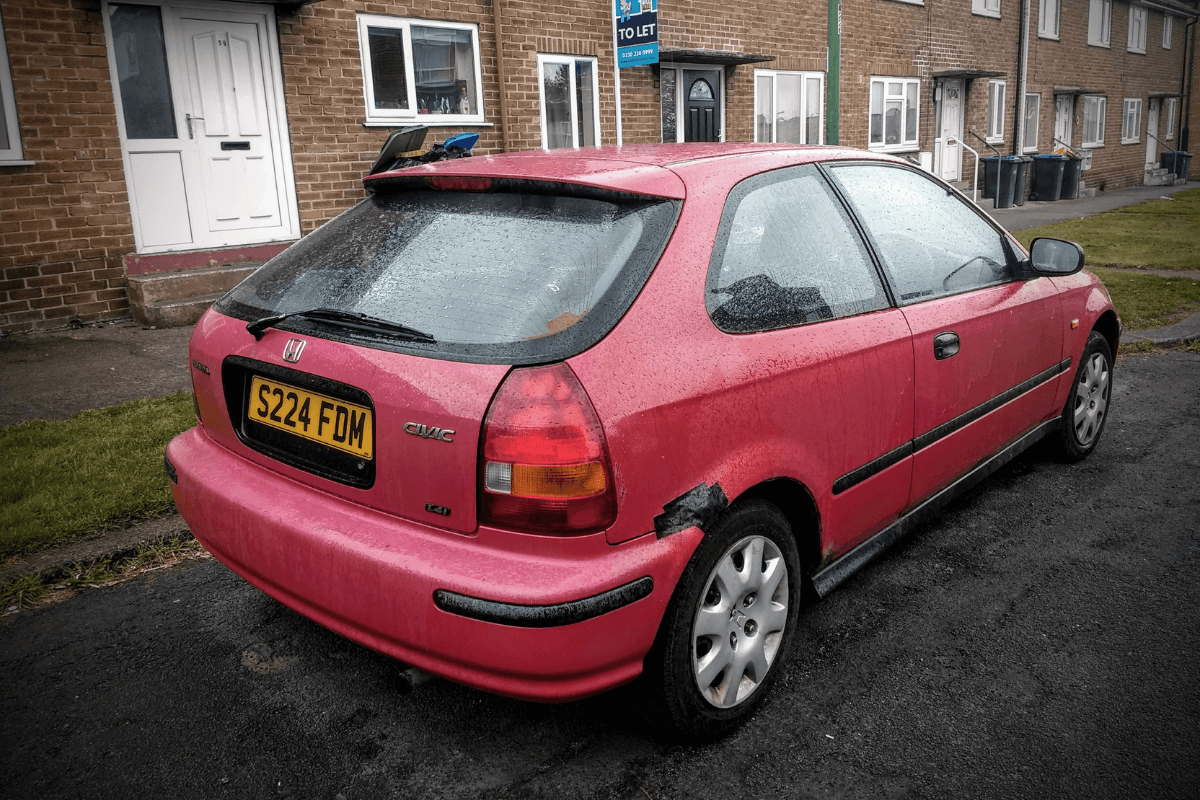
“Banger” is commonly used to describe an old, unreliable, or heavily used car, often on the verge of breaking down.
In the UK, “old banger” is a widely used phrase, while in some places, it’s also associated with stock car racing or demolition derbies.
The term can be affectionate or mocking, depending on the context.
Some people proudly drive a banger, seeing it as a badge of honor, while others desperately want to upgrade.
If a car smokes, rattles, or barely makes it down the road, it’s definitely a banger.
Examples in sentences:
- “I’m still driving my old banger, but it gets me from A to B.”
- “That banger looks like it’s about to fall apart!”
- “I bought a cheap banger just to use for work.”
- “This banger has seen better days, but I love it!”
- “We took the banger on a road trip—it was an adventure!”
Batmobile
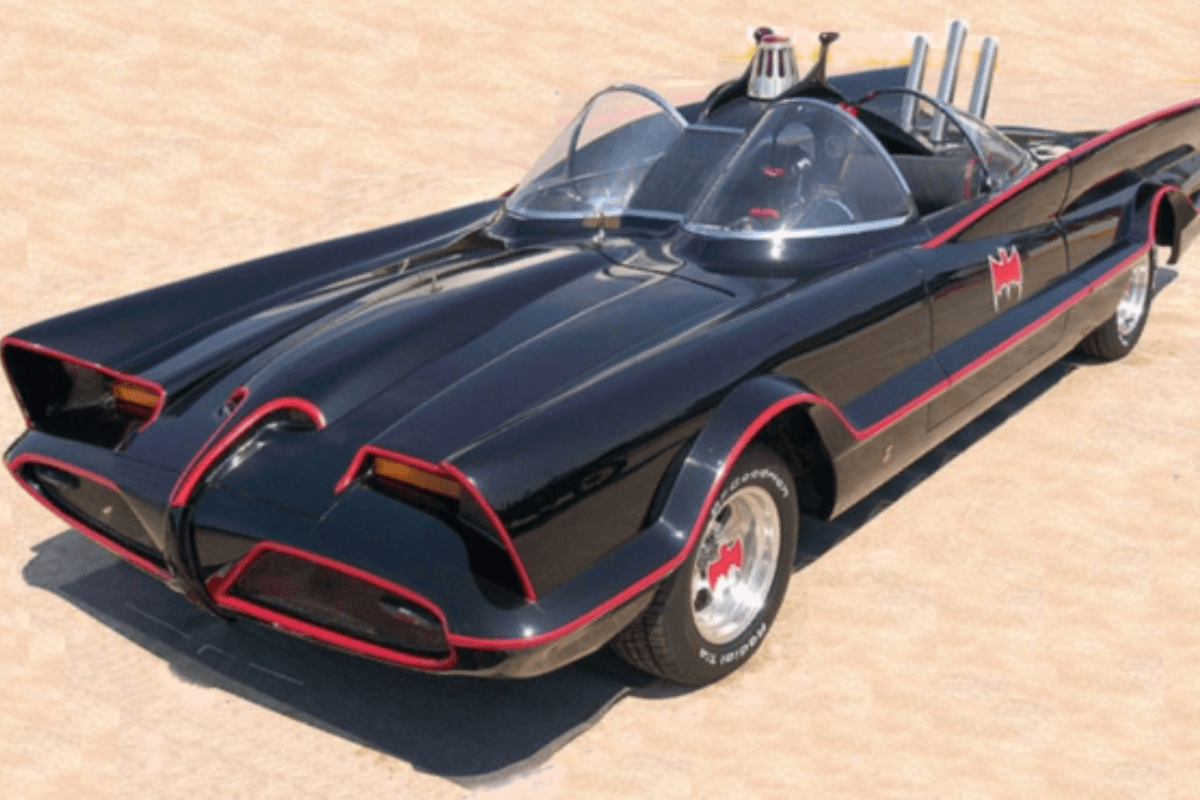
“Batmobile” is a term inspired by Batman’s iconic vehicle, used to describe a car that looks futuristic, powerful, or high-tech.
It often refers to black, stealthy-looking cars with aggressive designs or modifications.
Any car with tinted windows, sharp angles, and an overall intimidating presence might get labeled as a Batmobile.
The term is sometimes used humorously for vehicles that look exaggerated or over-the-top.
Whether it’s a heavily customized sports car or just a black sedan with an edgy look, calling a car a Batmobile suggests it has a superhero-level presence on the road.
Examples in sentences:
- “That matte black Lamborghini looks like a Batmobile!”
- “He modified his car so much it’s basically a Batmobile now.”
- “With those sharp angles, your car could be the next Batmobile.”
- “I feel like Batman driving this thing—it’s my personal Batmobile!”
- “Her car is so futuristic, we all call it the Batmobile.”
Beast
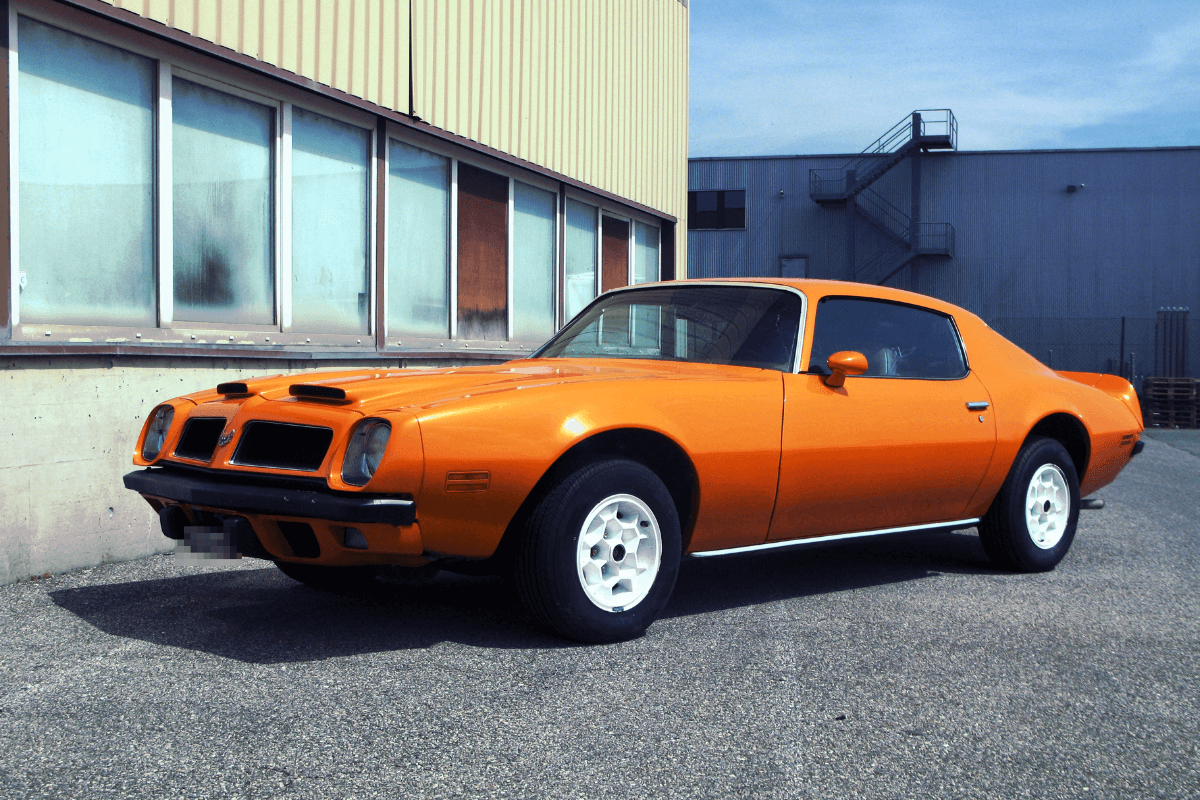
“Beast” is a popular slang term for a car that is exceptionally powerful, fast, or impressive.
It’s often used to describe muscle cars, sports cars, or any vehicle with a roaring engine and aggressive performance.
If a car accelerates like a rocket, dominates the road, or just looks menacing, people might call it a beast.
The term can also be applied to large, rugged vehicles like trucks or SUVs.
Whether it’s tearing up the track or cruising the streets, a beast of a car is one that demands attention and respect.
Examples in sentences:
- “That muscle car is a total beast!”
- “His truck is a beast—it can tow anything.”
- “This engine upgrade turned my ride into a beast.”
- “No one can keep up with that beast on the track.”
- “He called his car a beast, and after riding in it, I understand why.”
Beater
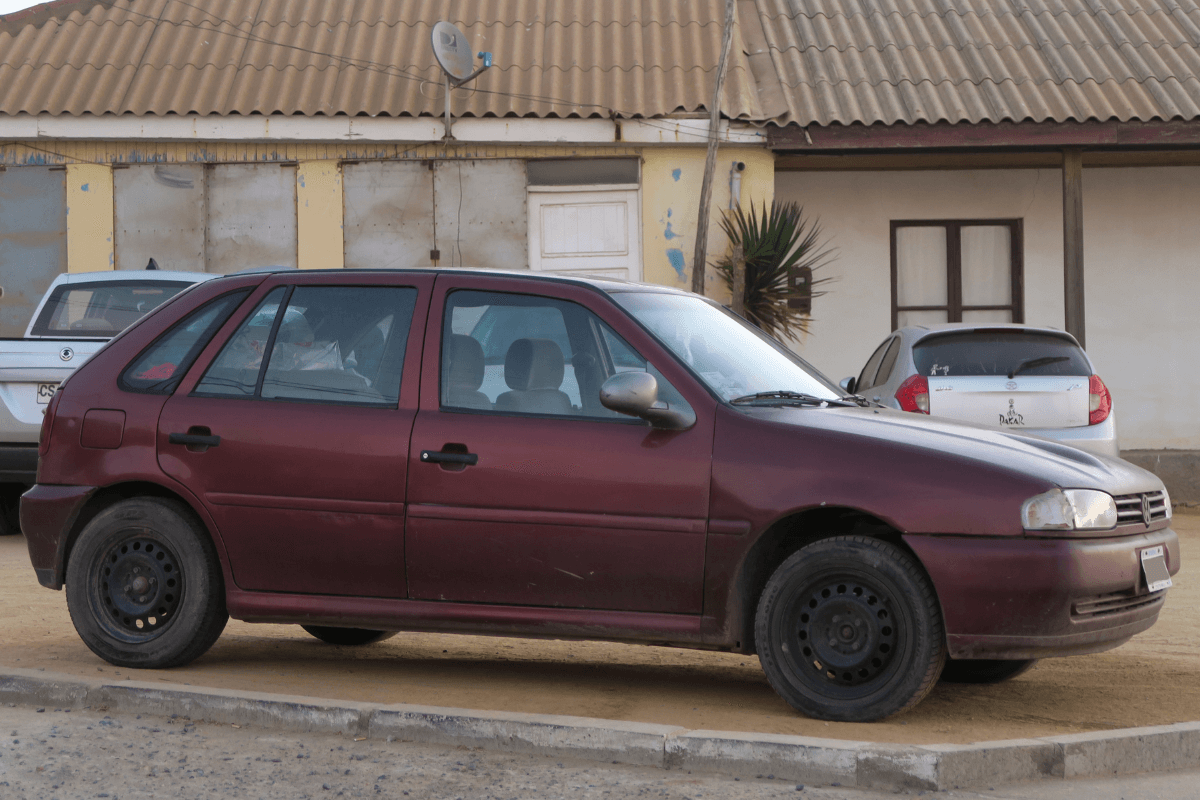
A “beater” is a car that has seen better days but still runs.
It’s usually cheap, dented, rusty, and maybe a little unreliable, but it gets the job done.
People often use beaters as daily drivers when they don’t want to put miles on a nicer car.
A beater might have a cracked windshield, a missing hubcap, or a door that won’t open properly, but as long as it starts and moves, it serves its purpose.
Many car enthusiasts have fond memories of their first beater, even if it wasn’t the prettiest ride.
Examples in sentences:
- “I’m just driving a beater until I can afford a new car.”
- “That old beater still runs after 20 years!”
- “I bought a beater for work so I don’t ruin my good car.”
- “His beater barely made it up the hill.”
- “She drives a beater, but it has character.”
Big Rig
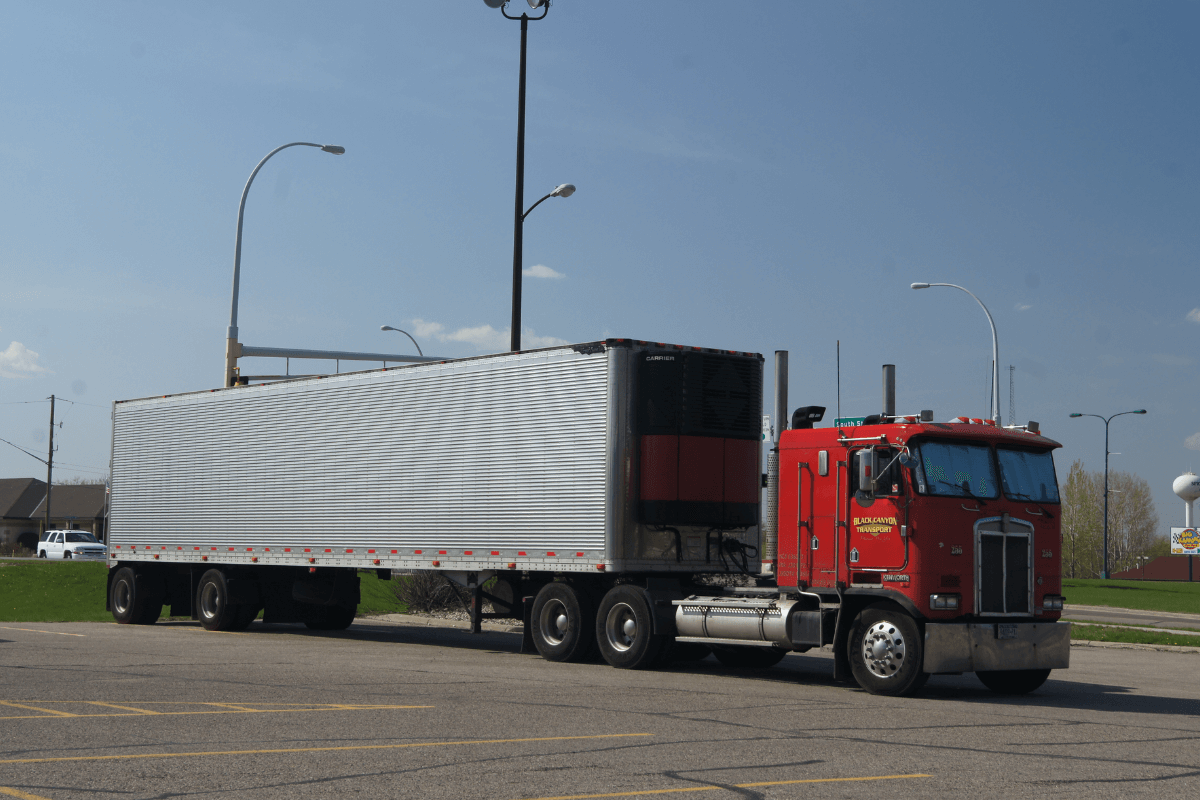
Not really a car, a “Big Rig” refers to a large commercial truck, usually a semi-truck with a trailer.
Truckers and people in the transportation industry use this term to describe the massive vehicles that haul goods across long distances.
The phrase highlights the truck’s size and power, emphasizing its role in heavy-duty work.
While “big rig” usually refers to professional transport trucks, some people use it jokingly to describe any large vehicle.
If someone says they’re driving a big rig, they’re likely referring to an 18-wheeler rather than a regular pickup truck.
Examples in sentences:
- “The highway was packed with big rigs today.”
- “He’s been driving a big rig for 20 years.”
- “Watch out for the big rig changing lanes!”
- “Big rigs have to stop at weigh stations along the route.”
- “My uncle owns a fleet of big rigs.”
Bone Shaker
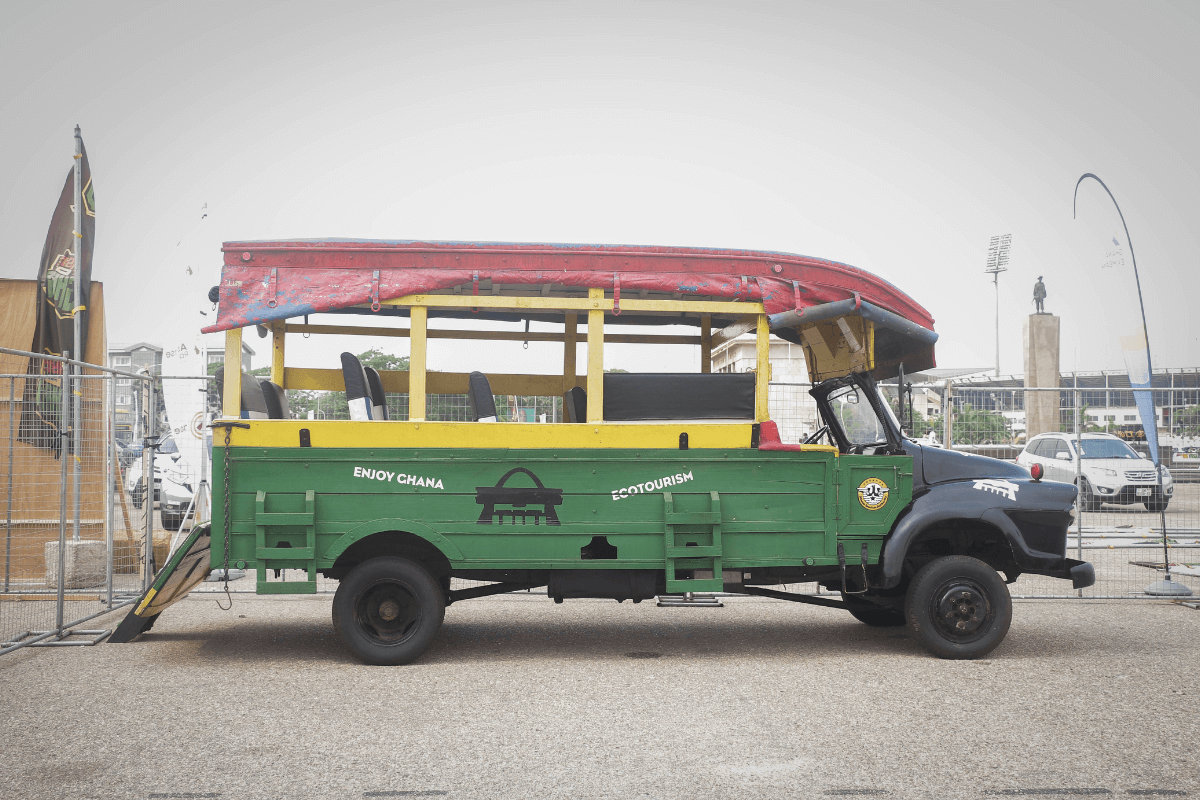
“Bone Shaker” is used to describe a car that has such a rough suspension or poor ride quality that it feels like it’s shaking your bones.
It often applies to old, poorly maintained cars, but it can also refer to certain vintage models with stiff rides.
The term paints a vivid picture of an uncomfortable journey, with every bump in the road being felt in full force.
While it’s mostly negative, some classic car enthusiasts use “bone shaker” affectionately for old-school rides with rigid suspensions.
Examples in sentences:
- “This old truck is a real bone shaker!”
- “That classic car looks cool, but it’s a bone shaker on the road.”
- “My dad’s first car was a total bone shaker.”
- “I don’t mind a bone shaker as long as it runs.”
- “The ride in that bone shaker left me sore for days!”
Box
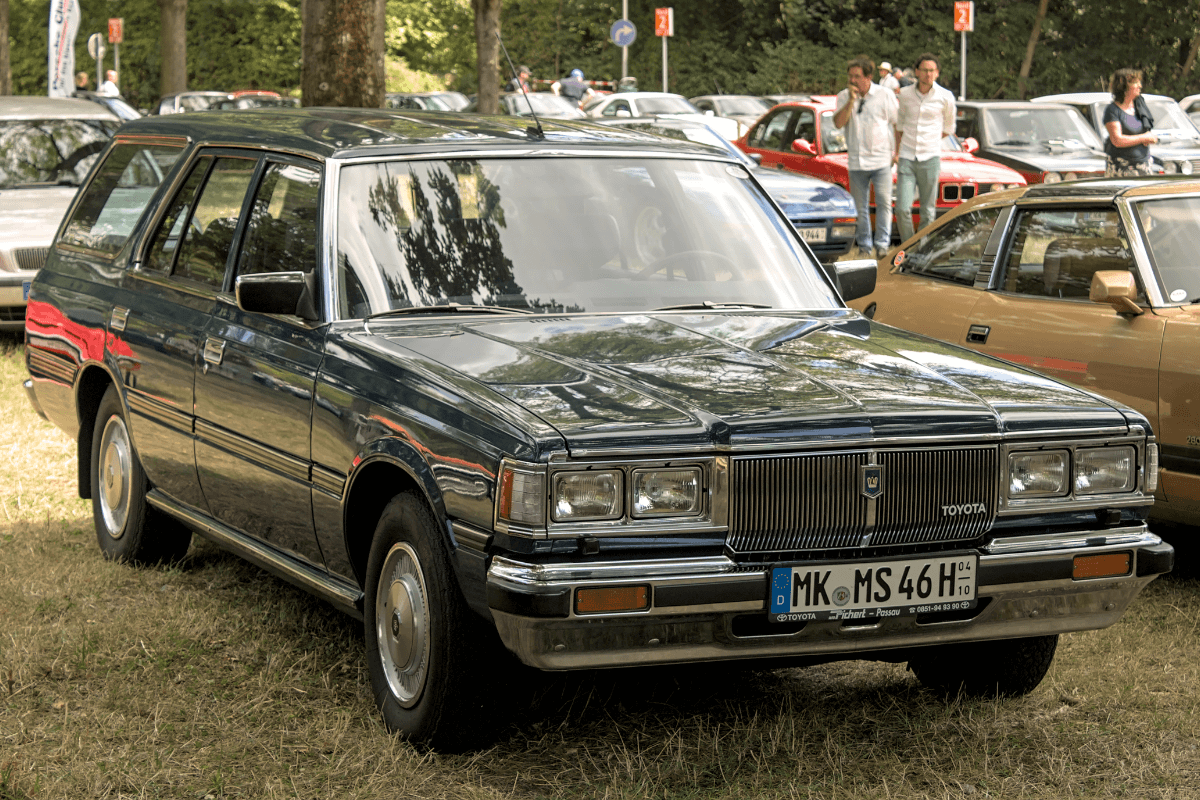
“Box” is used to describe a car with a squared-off, boxy design.
It’s often applied to older sedans, SUVs, or station wagons from the ‘80s and ‘90s that lack the sleek curves of modern cars.
Some people use “box” as an insult for a bulky, outdated car, while others embrace it as a term of endearment.
Boxy cars can be seen as sturdy and reliable, and some have even made a comeback in car culture due to their retro appeal.
Whether loved or hated, a “box” always stands out.
Examples in sentences:
- “He still drives that old box from the ‘90s.”
- “That car is such a box, but I love it!”
- “Box-shaped cars aren’t aerodynamic, but they have a certain charm.”
- “My grandpa’s car was a giant box on wheels.”
- “I never thought I’d own a box, but here we are.”
Brick
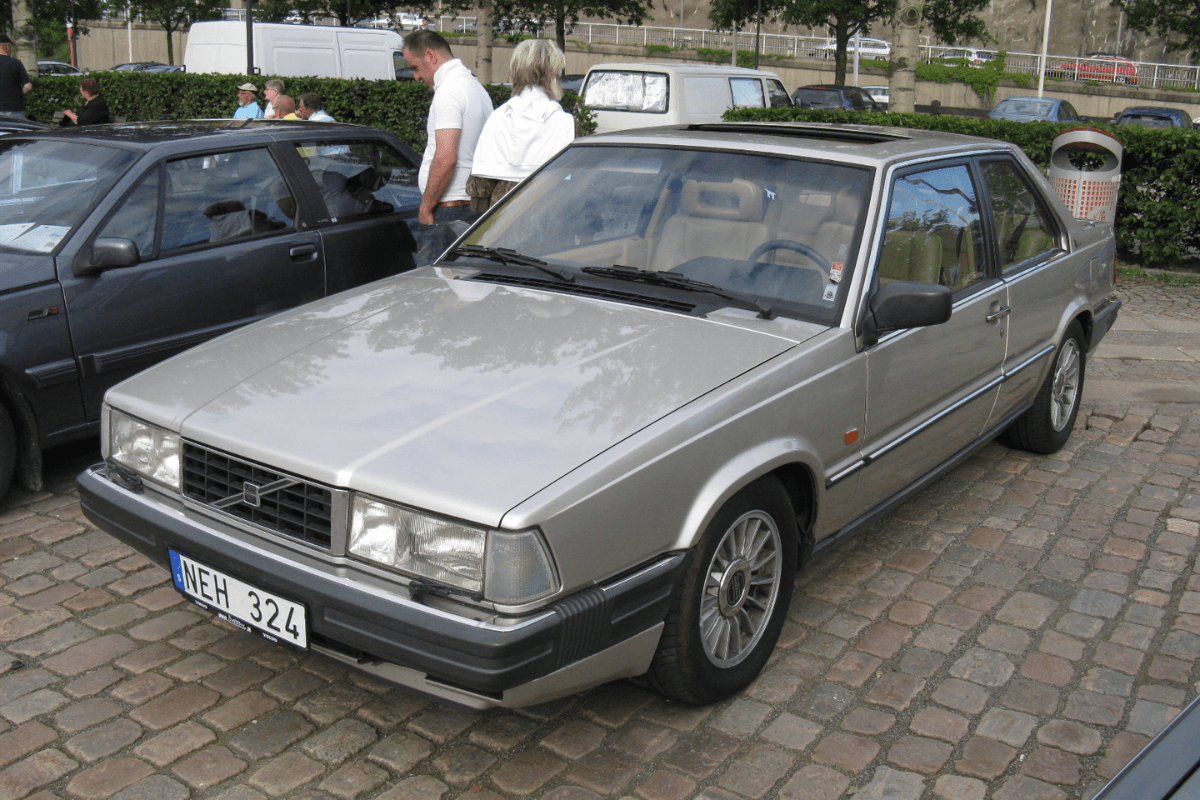
“Brick” is often used to describe a car that is built like a tank—heavy, tough, and sometimes sluggish.
Many old Volvos and other boxy cars are lovingly referred to as “bricks” due to their durability and squared-off design.
While it’s sometimes used negatively for cars that lack speed or sleekness, “brick” can also be a compliment for a car that’s built to last.
Some performance cars with solid, heavy frames are also called bricks, particularly if they have a reputation for taking hits and still running.
Examples in sentences:
- “That old Volvo is a brick—it’ll never break down.”
- “I love my brick of a car; it feels so safe.”
- “This thing drives like a brick, but it’s reliable.”
- “He crashed that brick into a pole, and it barely had a scratch!”
- “A brick like that will last forever.”
Bubbletop
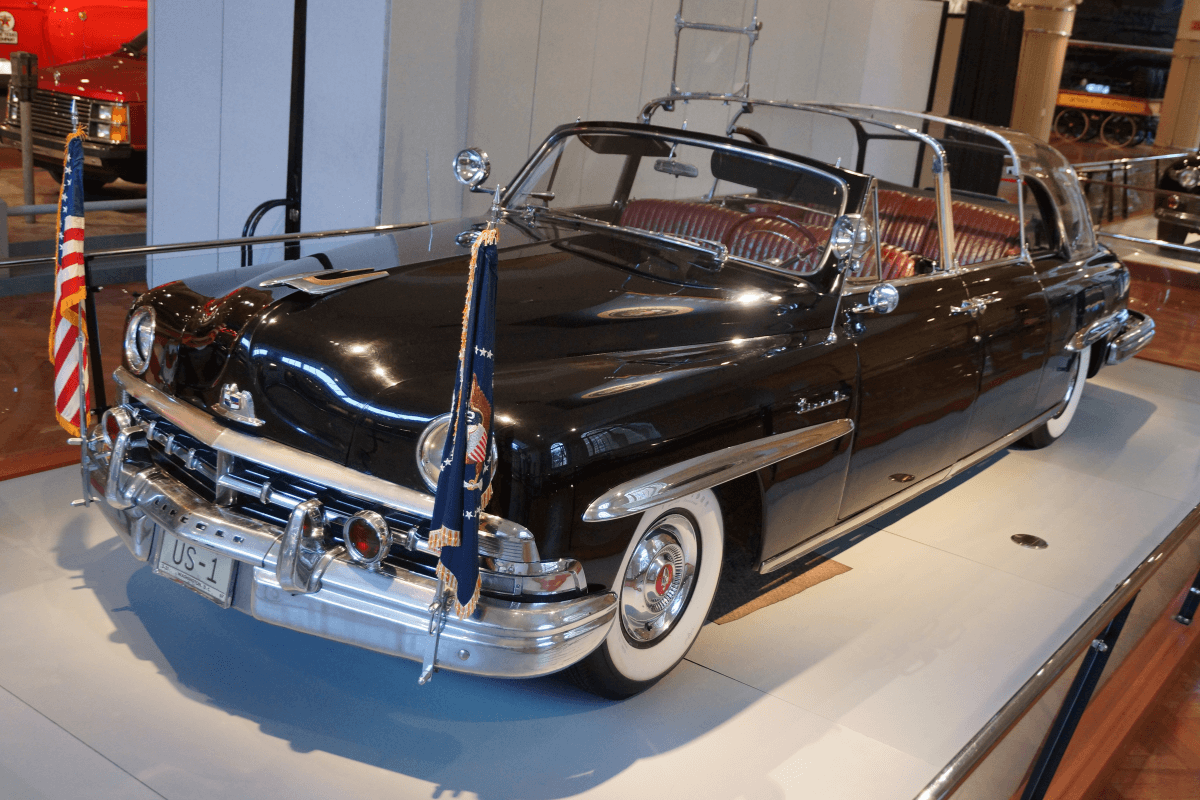
“Bubbletop” refers to classic cars, mainly from the 1950s and 1960s, that featured large, curved windshields and wraparound glass roofs.
These designs made the car’s interior feel open and airy, giving them a futuristic look.
The term is nostalgic, often used by vintage car enthusiasts to describe models with expansive glass areas that gave a “bubble” effect.
While modern cars don’t have true bubbletop designs, the term is still used for any vehicle with an unusually large glass canopy or panoramic windows.
Examples in sentences:
- “That bubbletop Cadillac is a beauty!”
- “I’ve always wanted to drive a bubbletop from the ‘50s.”
- “Bubbletop cars had such unique designs compared to today’s models.”
- “You don’t see many bubbletops on the road anymore.”
- “The bubbletop makes the car look so futuristic!”
Bucket
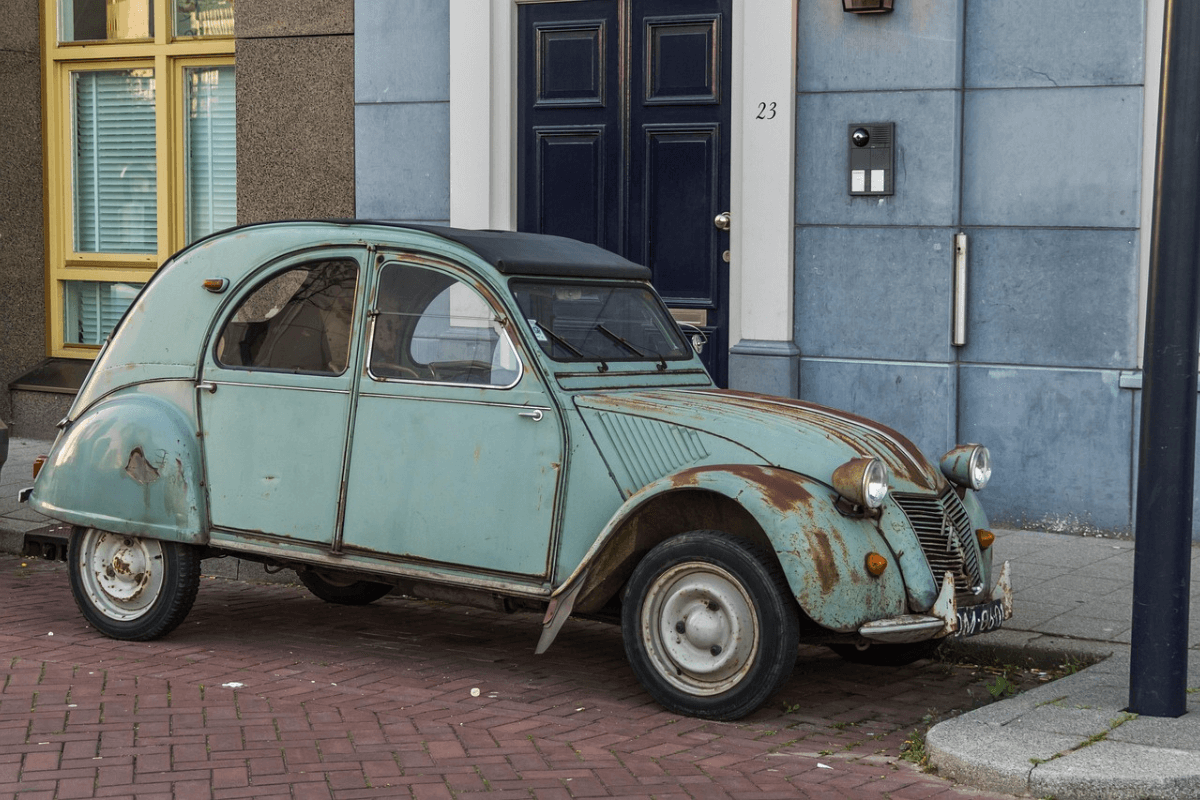
“Bucket” is often used to describe a car that’s in rough shape, whether it’s rusting, barely running, or just outdated.
It’s a shortened form of “bucket of bolts,” implying that the car is falling apart or held together by luck.
While it’s usually negative, some people use “bucket” affectionately for their old, well-loved cars.
In car culture, driving a “bucket” can even be a badge of honor, showing that you get the most out of a vehicle regardless of its condition.
Examples in sentences:
- “I’m still driving this old bucket until I can afford a new car.”
- “That bucket barely made it up the hill!”
- “He turned that bucket into a show car!”
- “The engine’s loud, the seats are ripped, but my bucket gets me where I need to go.”
- “Why spend money on a new car when my bucket still runs?”
Bug
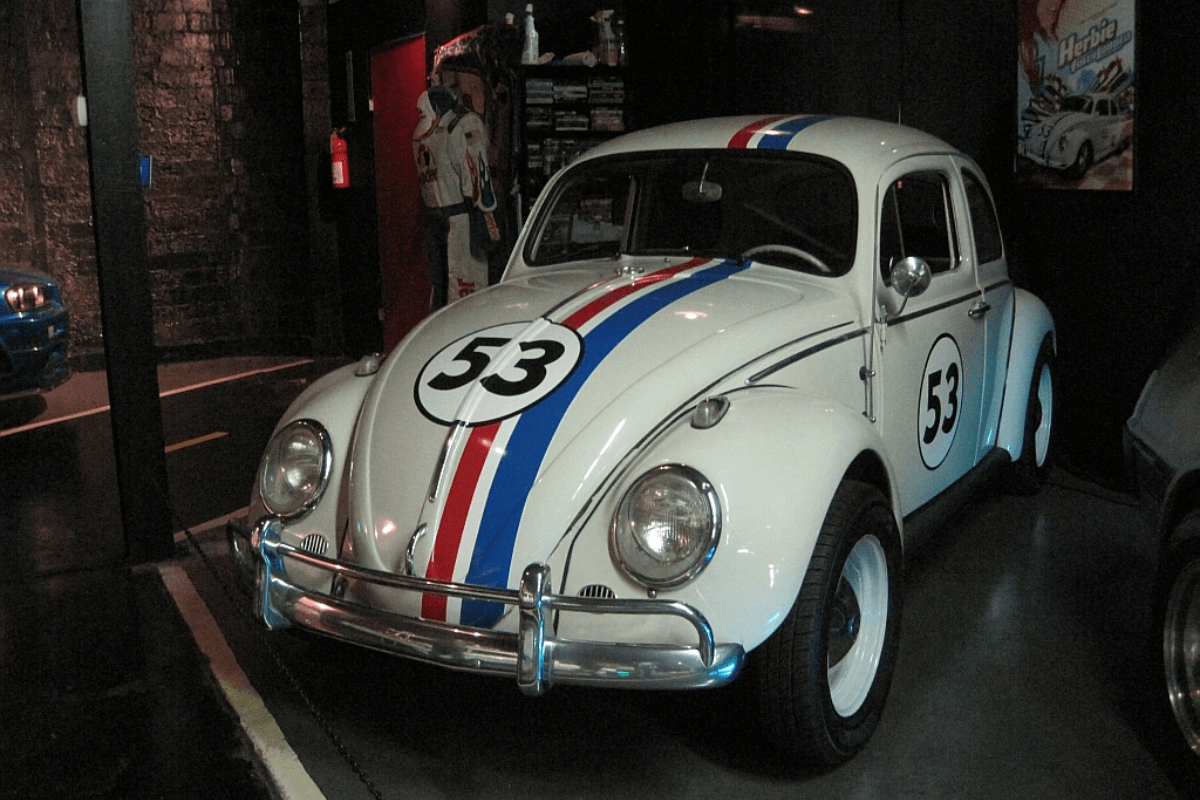
“Bug” refers specifically to the Volkswagen Beetle, one of the most iconic cars in history.
The nickname comes from the Beetle’s small, rounded shape, which resembles an insect.
Since its introduction in the 1930s, the Bug has been a favorite among car lovers, known for its affordability, reliability, and unique design.
Even with the modern version of the Beetle, the nickname “Bug” has stuck. For many, driving a Bug is more than just having a car—it’s about owning a piece of automotive history.
Examples in sentences:
- “She just bought a classic Bug and plans to restore it.”
- “My first car was a yellow Bug with a flower decal on the dashboard.”
- “The Bug is small, but it has a lot of personality.”
- “Volkswagen stopped making the Bug, but it will always be a classic.”
- “I spotted an old Bug at the car show last weekend.”
Buggy
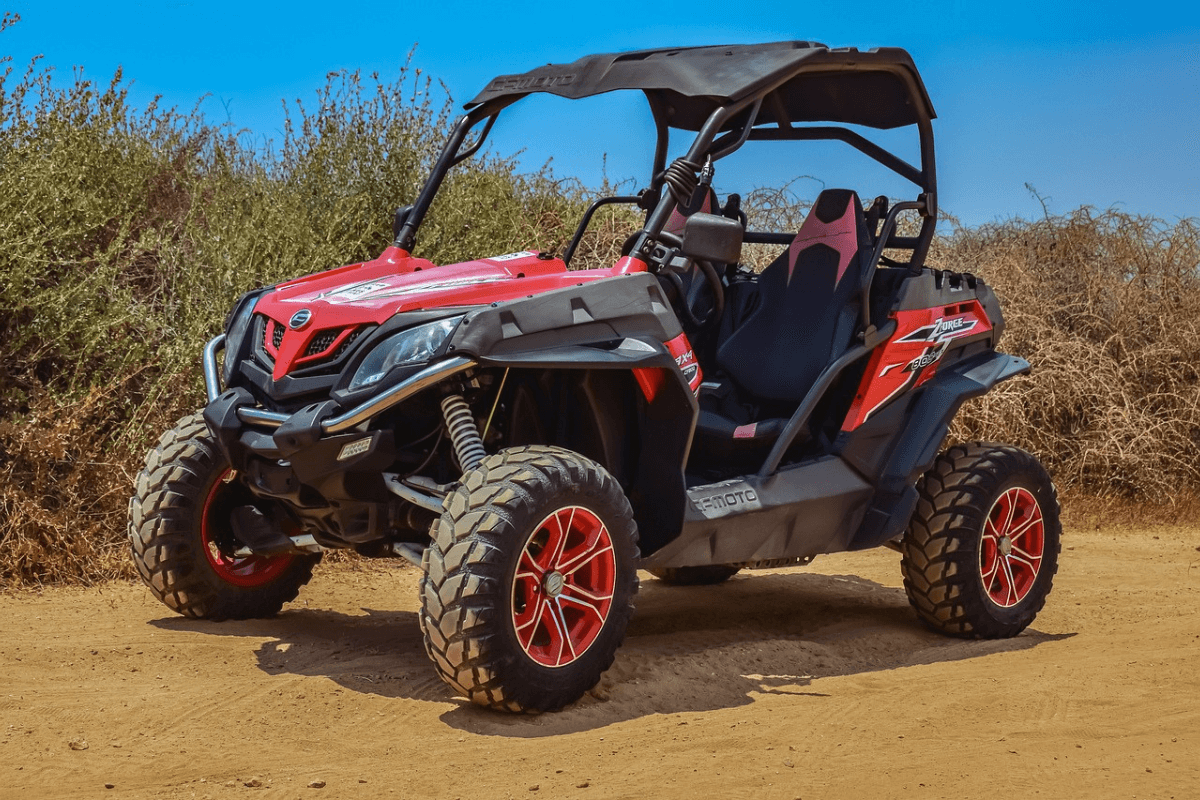
“Buggy” is a broad slang term that can refer to any small or light vehicle, but it’s most often associated with dune buggies.
These are off-road vehicles with large tires and minimal bodies, designed for driving on sand or rough terrain.
Some people also use “buggy” playfully to refer to compact cars in general.
The term has an old-fashioned feel, but it remains popular among off-road enthusiasts and fans of adventurous driving.
Examples in sentences:
- “We took the buggy out to the dunes for the weekend.”
- “That little buggy zips through traffic like a dream.”
- “He built his own buggy from scratch.”
- “I’d love to own a beach buggy one day.”
- “The buggy might not be fast, but it’s a lot of fun to drive.”
Bullet
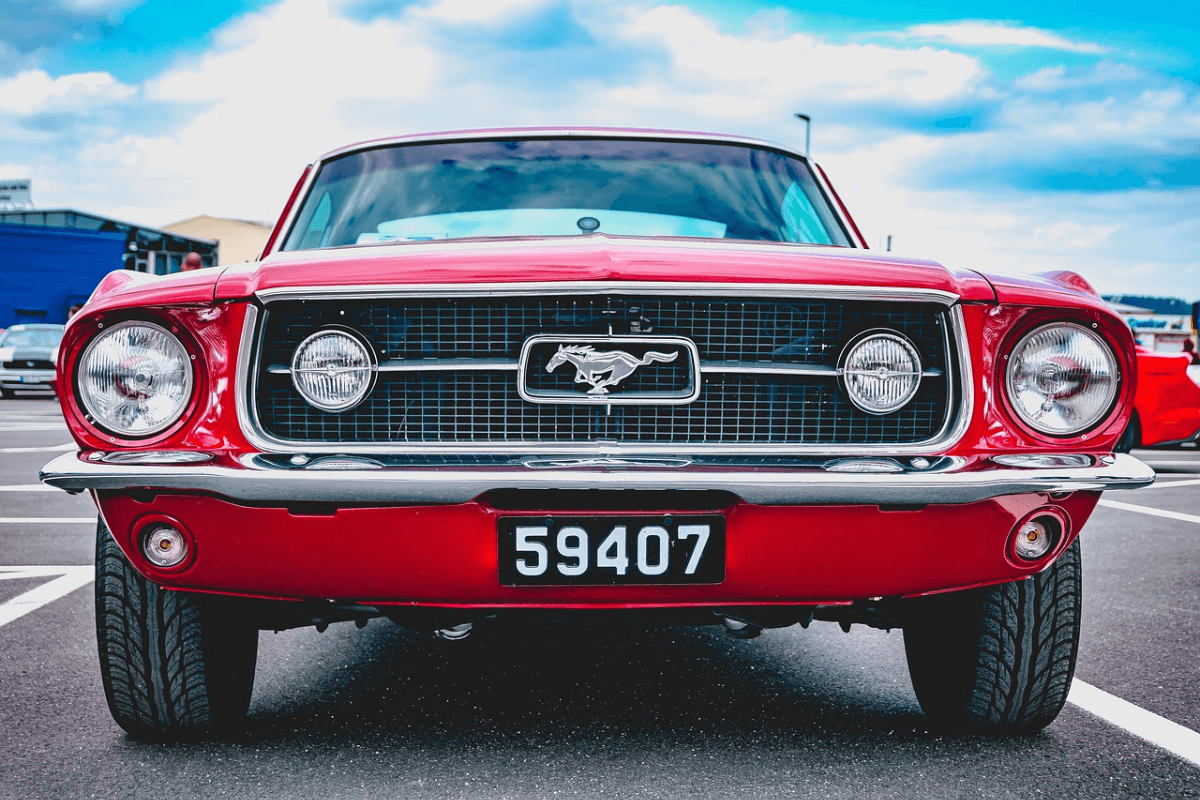
“Bullet” is used to describe a car that’s exceptionally fast or aerodynamic, much like an actual bullet.
It’s often applied to high-performance sports cars, muscle cars, or even motorcycles.
The name conveys speed, power, and a sleek, streamlined look.
Some cars, like the Ford Mustang Bullitt, even incorporate the word into their branding.
Whether it’s used to describe a specific model or just a car that looks and feels quick, calling a car a “bullet” is a way to highlight its power and speed.
Examples in sentences:
- “That car is a bullet on the highway!”
- “He drives a bullet—nothing can catch him.”
- “The new model is shaped like a bullet for better aerodynamics.”
- “He customized his ride to be a real bullet on the track.”
- “With that engine, this thing is a bullet waiting to fly!”
Cab
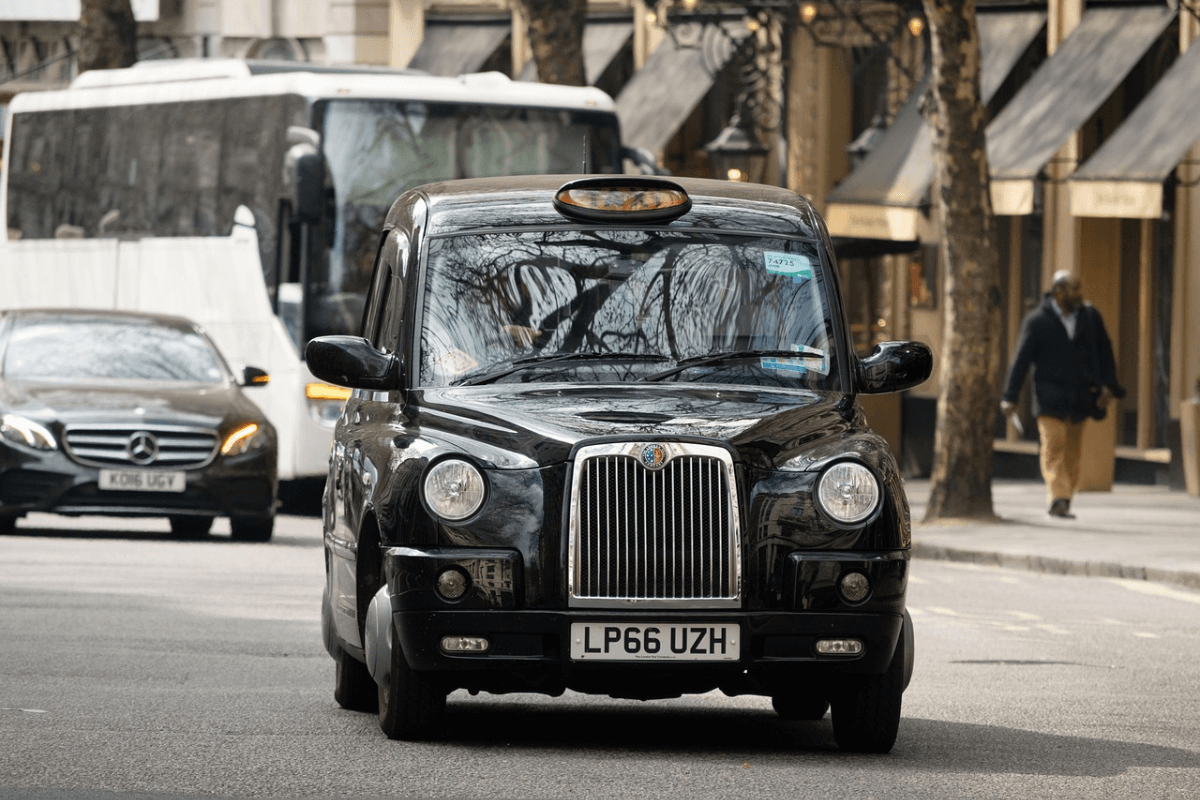
“Cab” is an abbreviation of “taxicab” and is widely used to refer to a taxi.
It’s one of the most universally recognized slang words for a car, especially in cities where taxis are common.
While “taxi” is also widely used, “cab” often has a more casual feel.
The word dates back to horse-drawn carriages used for hire in the 19th century, and it has stuck around ever since.
Whether it’s a classic yellow cab in New York or a black cab in London, “cab” remains the go-to term for a hired ride.
Examples in sentences:
- “I’ll grab a cab to the airport.”
- “Hailing a cab in this weather is nearly impossible.”
- “The cab ride was faster than taking the train.”
- “He jumped into a cab and sped off.”
- “London cabs are famous for their spacious interiors.”
Chariot
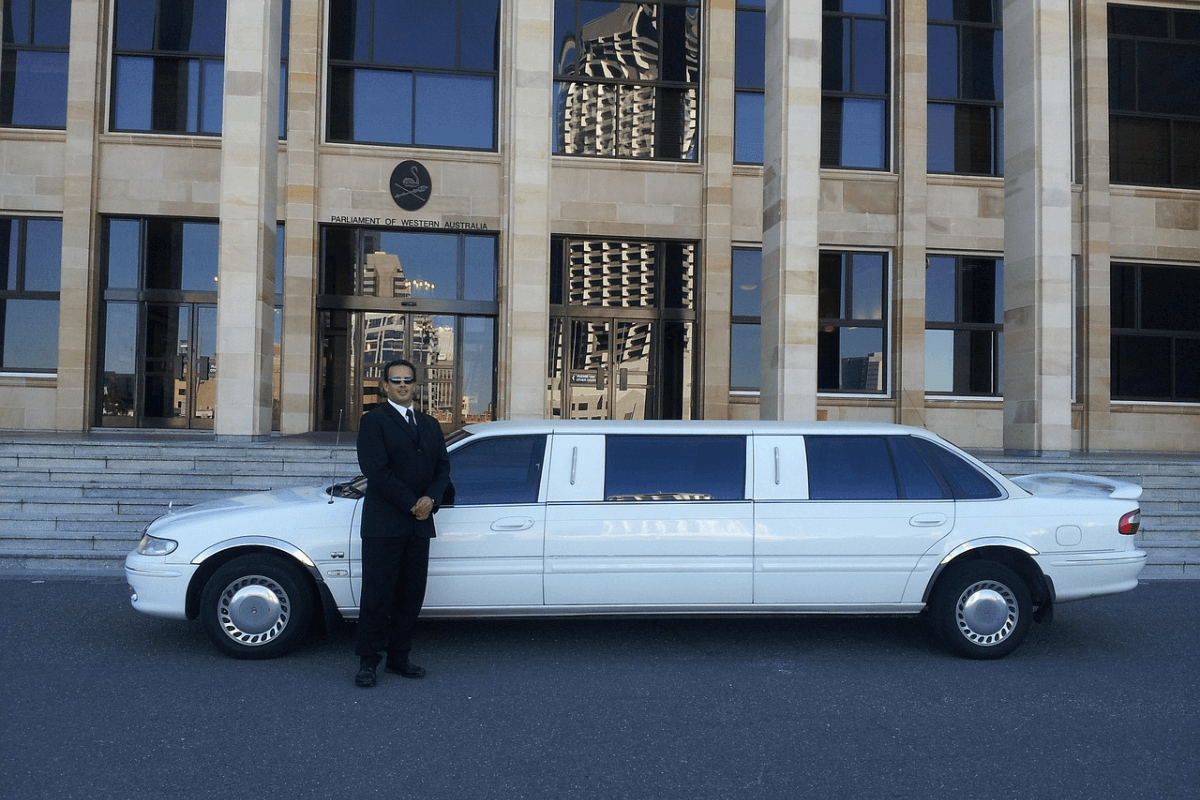
“Chariot” is an old-fashioned word for a horse-drawn vehicle, but in modern slang, it’s used jokingly to refer to a car.
It adds a sense of grandeur, even if the car in question isn’t anything special.
Some people use it to describe luxury cars, while others use it ironically for clunky, beat-up rides.
Whether serious or playful, calling a car a “chariot” makes it sound like a noble steed ready for adventure.
Examples in sentences:
- “Let’s hop in my chariot and hit the road!”
- “My chariot awaits—time to cruise!”
- “He treats his old station wagon like a royal chariot.”
- “Every morning, I take my chariot to work.”
- “She calls her convertible her modern-day chariot.”
Chrome Pony
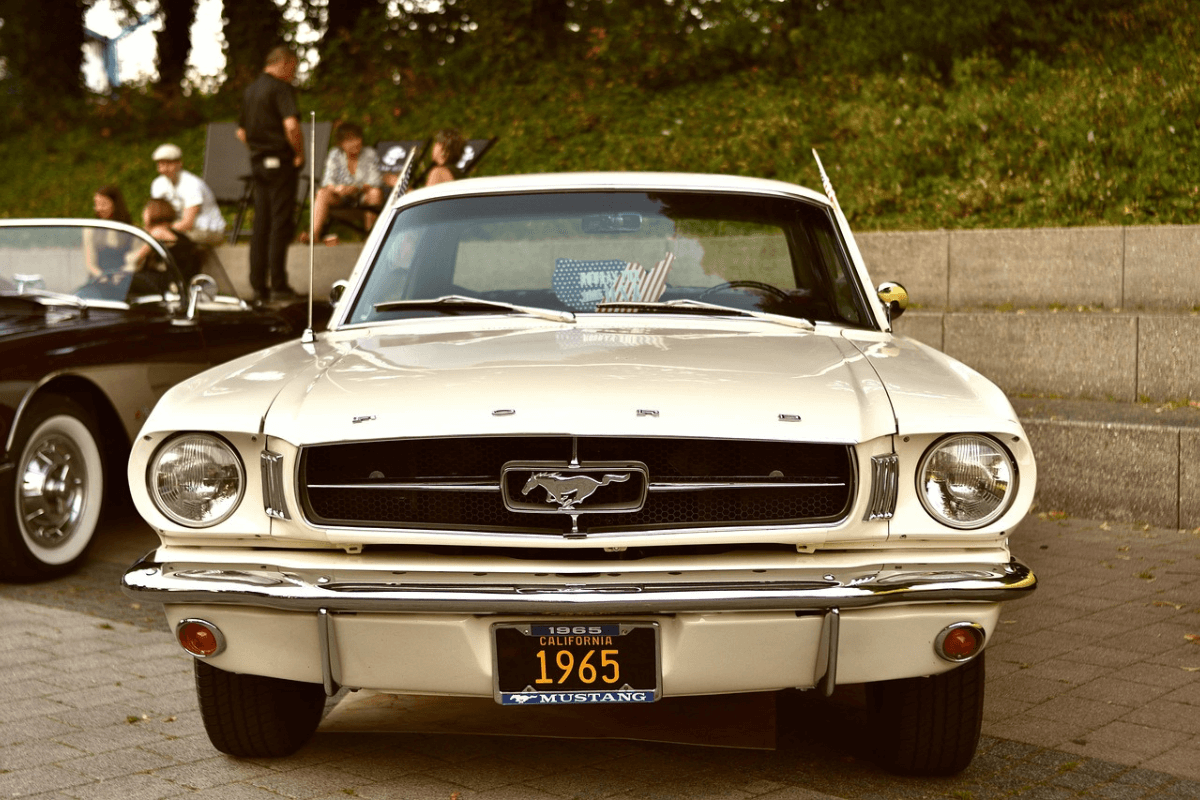
“Chrome Pony” is a playful nickname for the Ford Mustang, one of the most famous muscle cars.
The name comes from the Mustang’s logo, which features a galloping horse, combined with the gleaming chrome accents found on classic models.
Mustang enthusiasts often use this term when talking about their beloved cars, emphasizing the combination of power, style, and American automotive heritage.
Examples in sentences:
- “He just bought a new Chrome Pony, and it’s a beauty!”
- “Nothing beats the roar of a Chrome Pony on the open road.”
- “His garage is full of classic Chrome Ponies.”
- “She’s been dreaming of owning a Chrome Pony since she was a kid.”
- “That Chrome Pony turns heads wherever it goes.”
Classic
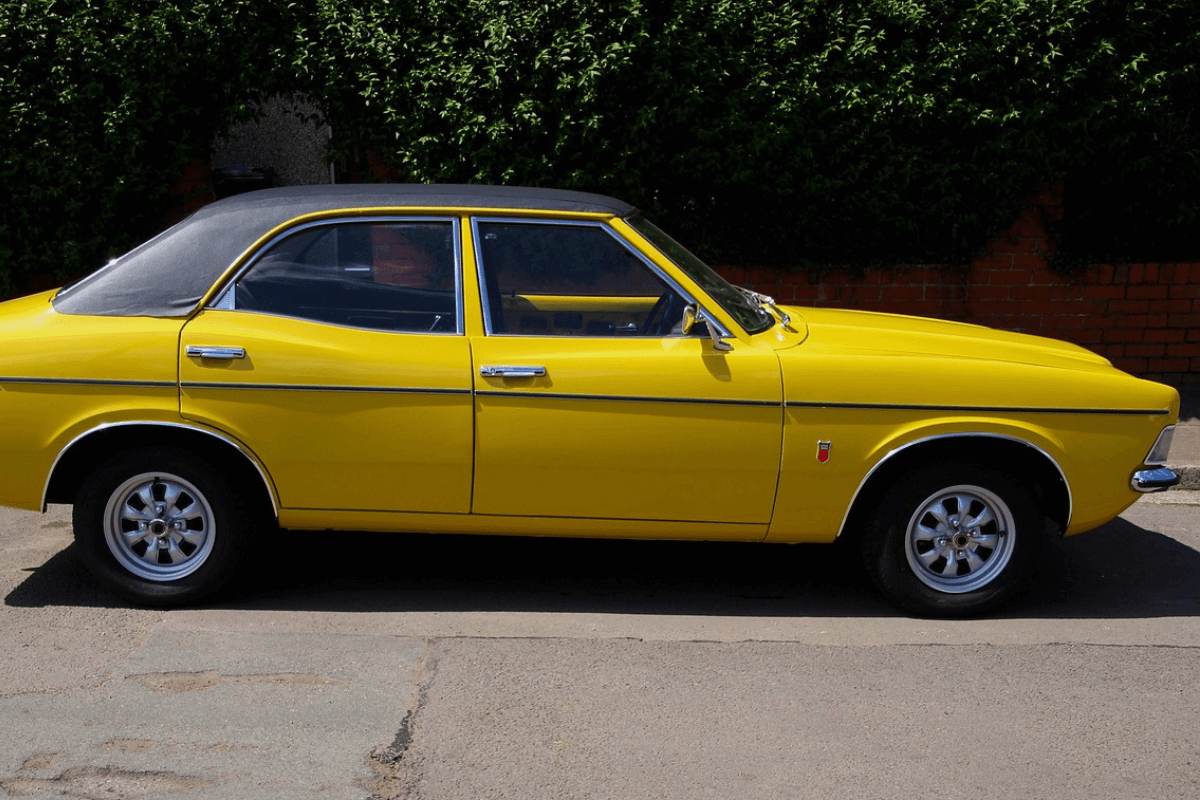
“Classic” refers to a car that has stood the test of time, often admired for its design, performance, or cultural significance.
While definitions vary, a car is generally considered a classic if it’s over 20 years old and still in good condition.
Classic cars often include muscle cars, vintage roadsters, and luxury sedans from past decades.
Owning a classic car is a point of pride for many enthusiasts, and restoring them is a popular hobby.
These cars turn heads and often appreciate in value over time.
Examples in sentences:
- “That Mustang is a true classic!”
- “I dream of owning a classic car one day.”
- “He spent years restoring his classic to its original glory.”
- “This beauty is a classic—it’ll never go out of style.”
- “Classic cars require extra care, but they’re worth it.”
Cloud
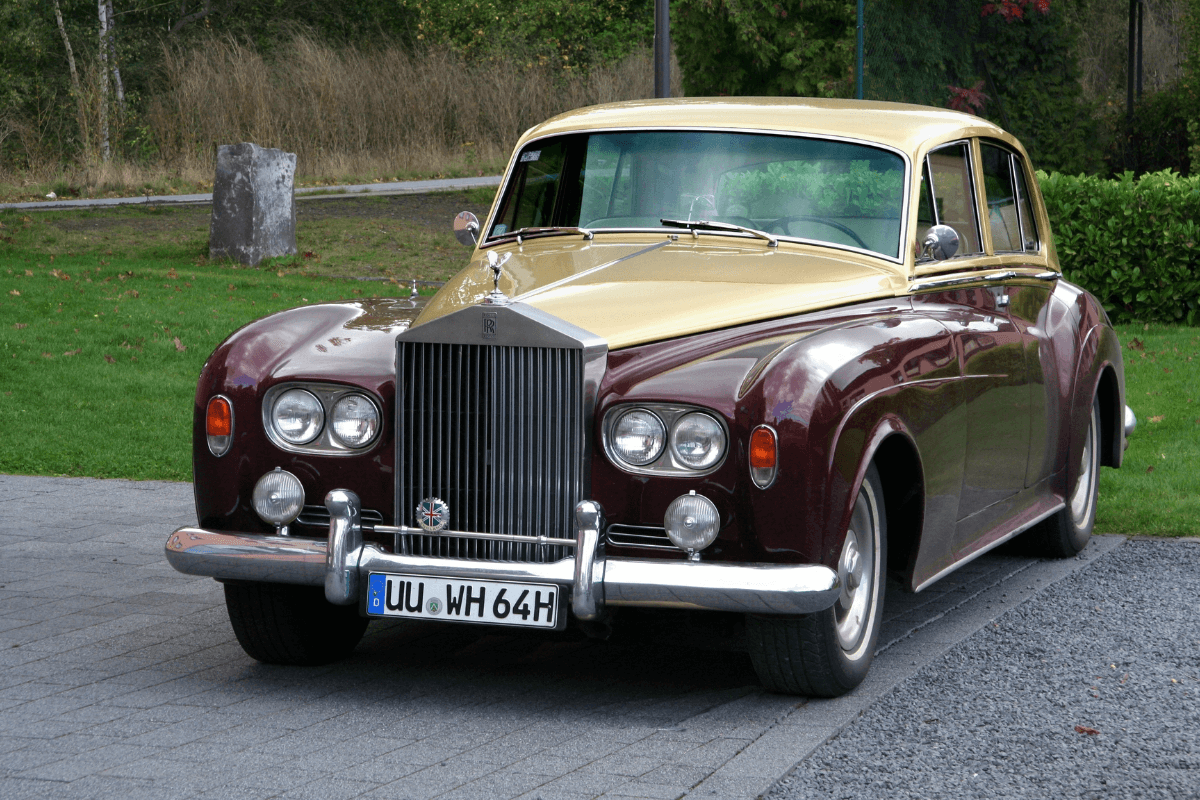
“Cloud” is shorthand for the Rolls-Royce Silver Cloud, a luxury car model produced from 1955 to 1966.
This elegant vehicle is known for its smooth ride, graceful curves, and association with wealth and prestige.
The name “Cloud” reflects its reputation for floating down the road effortlessly, as if gliding on air.
Even today, the Silver Cloud remains one of the most desirable classic Rolls-Royce models, often seen at high-end events, weddings, and in the collections of car enthusiasts.
Examples in sentences:
- “He arrived in a beautifully restored Cloud.”
- “Owning a Cloud is a sign of true luxury.”
- “The Cloud’s ride is as smooth as its name suggests.”
- “Only the elite could afford a Cloud back in the day.”
- “A well-maintained Cloud can fetch an impressive price at auction.”
Clunker
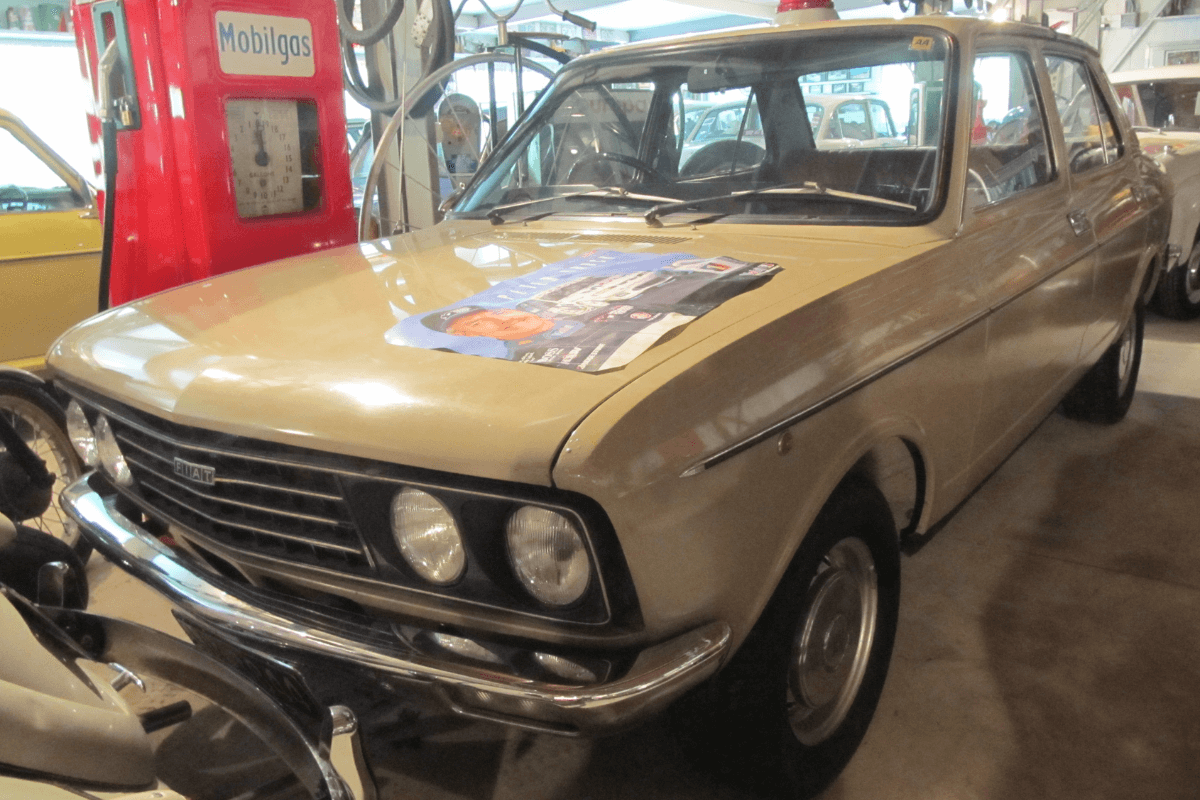
“Clunker” is a slang term for a car that’s past its prime—rusty, unreliable, and barely hanging on.
These vehicles often have mechanical issues, make strange noises, and might even be held together with duct tape and luck.
The term became widely used in the late 20th century and gained further popularity during “cash for clunkers” trade-in programs.
While a clunker might not be glamorous, some people love their old beaters and keep them running for years despite their flaws.
Examples in sentences:
- “My old clunker barely starts in the winter.”
- “I can’t believe you’re still driving that clunker!”
- “This clunker has seen better days, but it gets me where I need to go.”
- “He traded in his clunker for something more reliable.”
- “The engine on that clunker sounds like it’s about to explode.”
Convertible
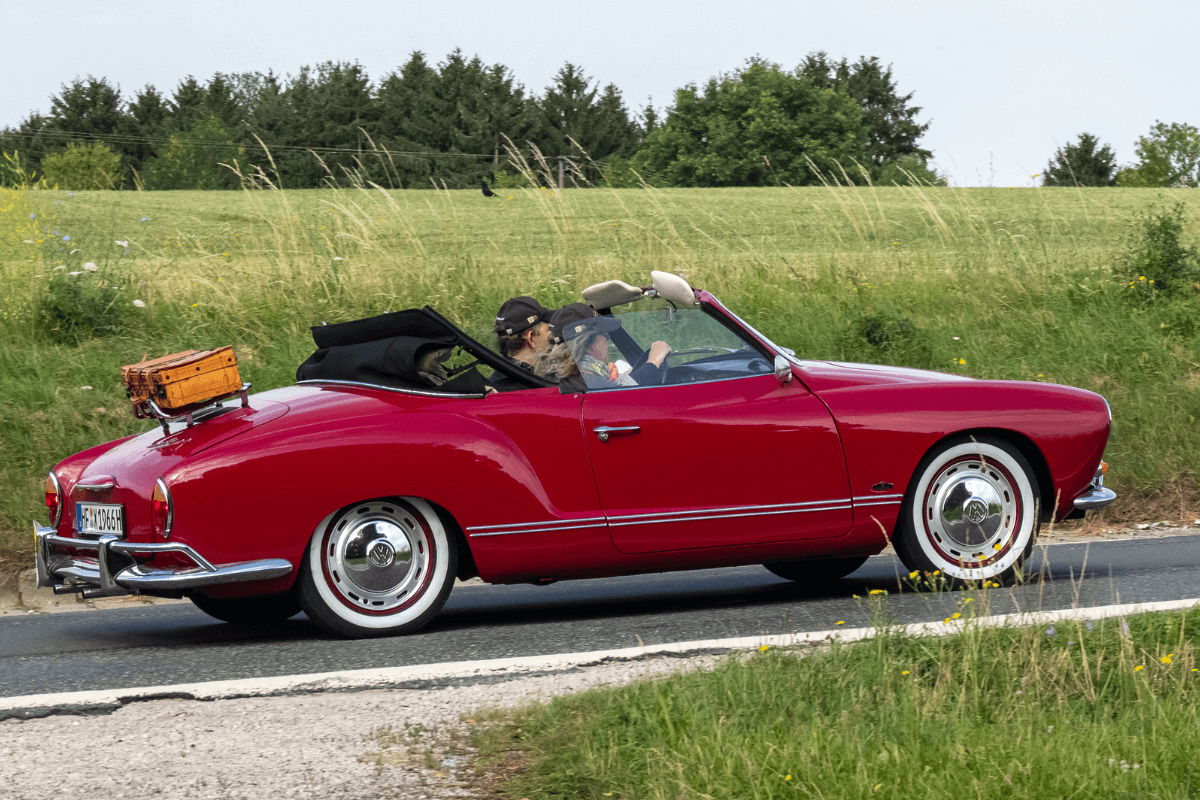
A “Convertible” is a type of car with a roof that can be folded back or removed, allowing passengers to enjoy open-air driving.
This style of car is often associated with luxury, freedom, and an enjoyable driving experience, especially on sunny days.
Convertibles can be designed in various ways, such as a soft-top or hardtop, and are popular among those who want to combine the thrill of driving with a bit of style.
They have been a favorite for road trips, scenic drives, and car enthusiasts for many years.
Examples in sentences:
- “He took the convertible out for a spin on a sunny afternoon.”
- “I’d love to own a convertible with a leather interior.”
- “The convertible was perfect for our beachside road trip.”
- “She waved at the crowd as she cruised by in her convertible.”
- “Nothing beats the feeling of the wind in your hair in a convertible.”
Coupe
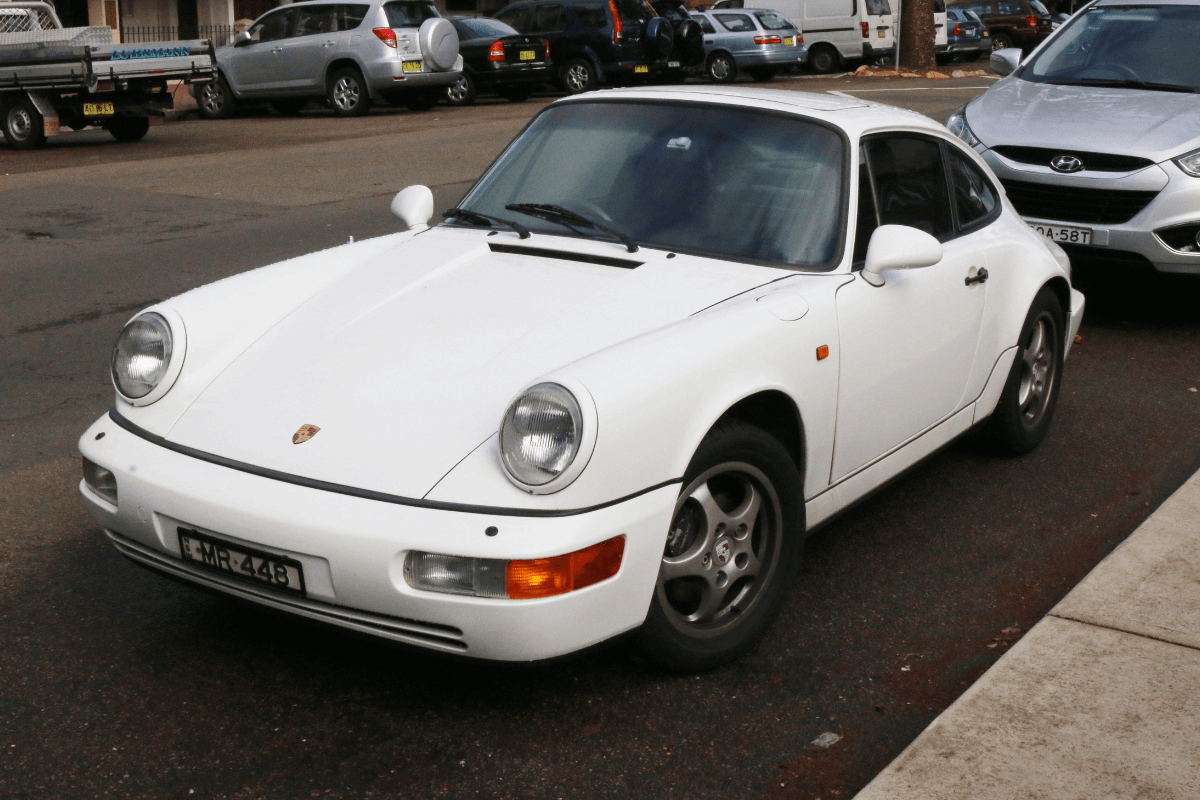
A “Coupe” is a sleek, two-door car known for its sporty design and stylish appeal.
Typically, coupes have a smaller back seat or none at all, prioritizing aesthetics and performance over practicality.
These cars are often low-slung and feature a compact, aerodynamic shape, making them ideal for those who love driving for the thrill of it.
Popular among those who value style, performance, and a smooth ride, the coupe has been a staple in the automotive world for decades, from classic muscle cars to modern luxury models.
Examples in sentences:
- “He drove a classic red coupe that turned heads wherever he went.”
- “Coupe models are often more expensive due to their design and performance.”
- “She opted for a sporty coupe instead of a four-door sedan.”
- “The coupe’s low profile made it a dream to handle on winding roads.”
- “Coupe cars are the perfect blend of style and speed.”
Coupe De Ville
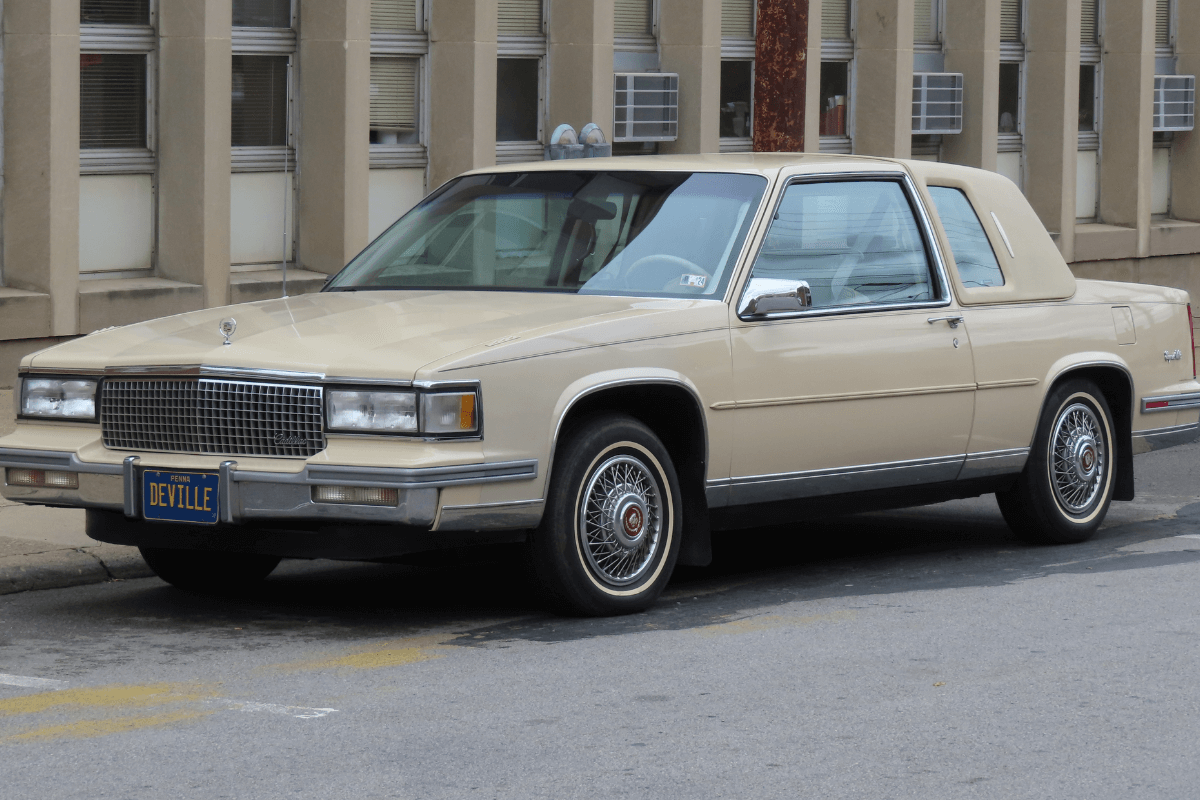
The “Coupe De Ville” is a classic term for a luxurious two-door sedan, often linked to elegance and wealth.
This type of car is larger than a regular coupe, with a more spacious interior and a focus on comfort and luxury.
It was popular in the mid-20th century and is often associated with high-end brands like Cadillac.
With its distinctive design and lavish features, the Coupe De Ville was designed to make a statement, combining the practicality of a sedan with the sleekness and prestige of a coupe.
Examples in sentences:
- “The Cadillac Coupe De Ville was the ultimate symbol of luxury in the 1960s.”
- “He cruised down the boulevard in his Coupe De Ville, turning every head.”
- “The Coupe De Ville’s plush leather seats were the epitome of comfort.”
- “She dreamed of owning a classic Coupe De Ville one day.”
- “Nothing says old-school luxury like a Coupe De Ville.”
Cruiser

A “Cruiser” refers to a car designed for leisurely, long-distance driving, emphasizing comfort and smooth handling.
Cruisers typically have a spacious interior, soft suspension, and features that make long road trips more enjoyable, such as advanced sound systems and luxurious seating.
While cruisers can be any size, they’re usually larger vehicles that provide a relaxed driving experience, making them ideal for cruising down highways or along coastal roads.
They may not be the most agile, but they offer a pleasant and stress-free ride for those who enjoy the journey as much as the destination.
Examples in sentences:
- “We rented a cruiser for our cross-country trip.”
- “This cruiser handles the long stretches of road like a dream.”
- “He’s got a big, comfortable cruiser that’s perfect for weekend getaways.”
- “They spent hours cruising along the coast in their convertible cruiser.”
- “This car feels like it was built for long cruises through the countryside.”
Cruiserweight
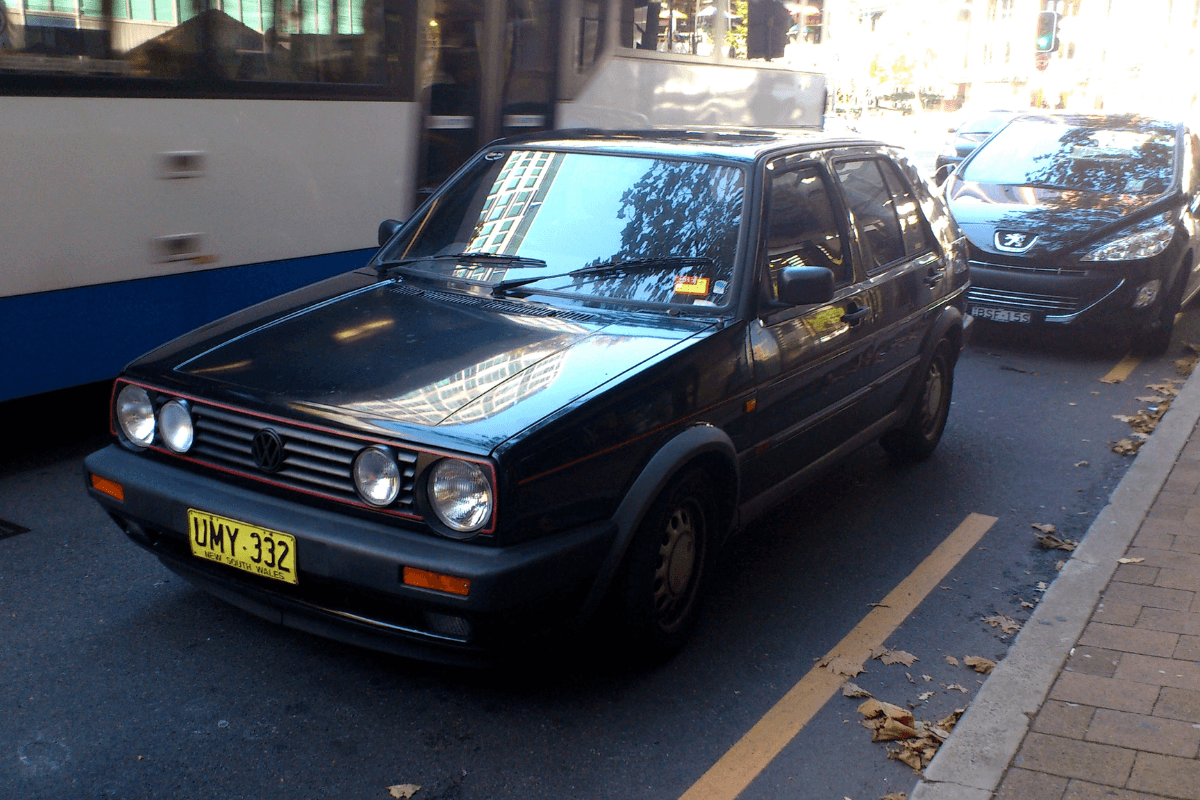
The term “Cruiserweight” is borrowed from boxing and refers to a car that offers a balance between size and weight, making it ideal for comfortable yet practical driving.
These cars aren’t as large and heavy as full-sized vehicles, but they still offer a smooth and stable ride.
Typically, cruiserweights are known for being versatile, able to handle long drives while maintaining decent agility in city traffic.
They appeal to drivers who want something with more power than a compact car but without the bulkiness of an SUV or full-sized sedan.
Examples in sentences:
- “The cruiserweight model was perfect for city driving while still feeling solid on the freeway.”
- “This cruiserweight car can handle tight corners while still offering comfort.”
- “He switched from a sedan to a cruiserweight for a better driving experience.”
- “I love how this cruiserweight balances power and fuel efficiency.”
- “The cruiserweight felt nimble yet sturdy on the open road.”
Deathtrap
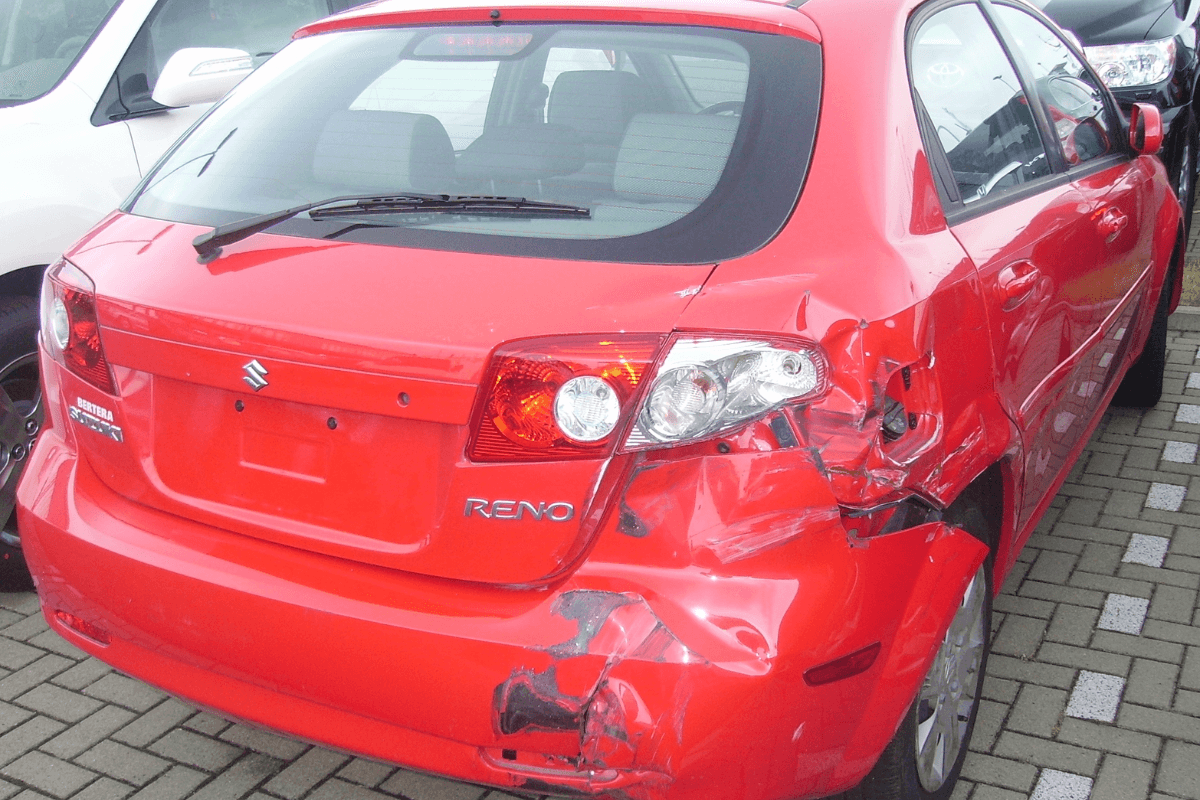
“A “Deathtrap” refers to an old, unreliable, or dangerously worn-out car that is considered unsafe to drive.
The term is often used humorously, but it can also reflect genuine concern for the vehicle’s state.
Cars that are called deathtraps typically have serious mechanical issues, like faulty brakes, worn-out tires, or a deteriorating frame, which make them unsafe on the road.
While the name is usually exaggerated, it conveys how risky it might be to drive a car that hasn’t been properly maintained or is past its prime.
Examples in sentences:
- “That old truck is a real deathtrap—don’t drive it without checking the brakes!”
- “I can’t believe you’re still driving that deathtrap!”
- “The car’s so old, it feels like a deathtrap every time I turn the key.”
- “If you’re going to buy a used car, don’t get a deathtrap.”
- “They call that old thing a deathtrap, but it still gets us around.”
Deuce
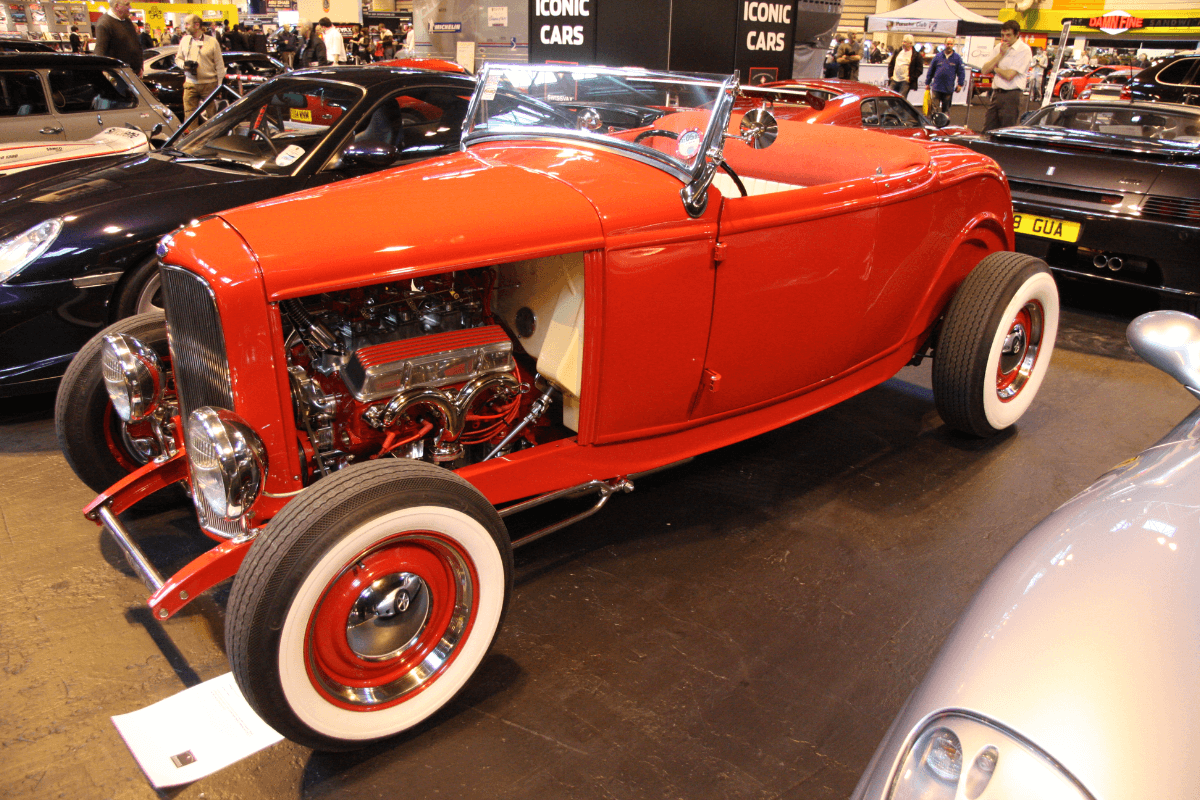
“The term “Deuce” is shorthand for the 1932 Ford Model B, a car that has become an icon in hot rod culture.
This model is considered one of the most popular cars for customization, particularly for street racing enthusiasts and car collectors.
The Deuce, with its distinct and timeless design, has a special place in automotive history, especially in the early days of hot rods.
Its combination of sleek style and performance made it a favorite among car enthusiasts, and it remains a symbol of vintage American cars.
Examples in sentences:
- “He’s been working on his Deuce for years, getting it just right.”
- “The Deuce is one of the most iconic cars in American hot rod culture.”
- “They showed off their classic Deuce at the car show this weekend.”
- “I love the look of that Deuce—it’s pure nostalgia on wheels.”
- “The Deuce’s V8 engine makes it a true performance car even today.”
Diesel Pusher
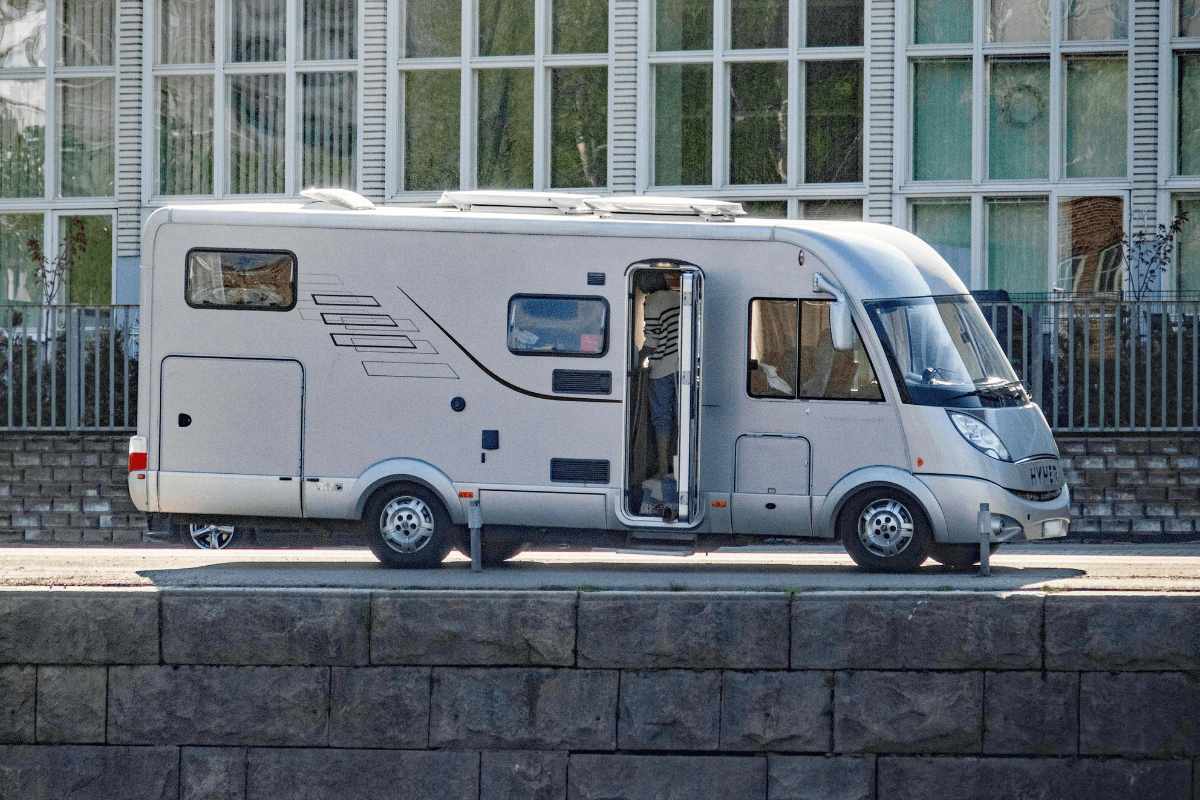
A “Diesel Pusher” is a type of recreational vehicle (RV) or motorhome powered by a diesel engine.
These vehicles are typically larger and built for long-haul travel, making them perfect for road trips and extended vacations.
Diesel pushers offer greater power and towing capacity compared to their gasoline counterparts, allowing for smoother, more efficient driving over long distances.
They’re a popular choice for people who enjoy the freedom of the open road and prefer the comfort of a large, fully equipped home on wheels.
Examples in sentences:
- “We rented a diesel pusher for our cross-country road trip.”
- “The diesel pusher had all the amenities of a home, including a full kitchen.”
- “Their diesel pusher can easily handle towing a car behind it.”
- “We spotted a sleek diesel pusher at the RV park—perfect for long journeys.”
- “If you’re going on a long road trip, a diesel pusher is the way to go.”
Draggin’ Wagon
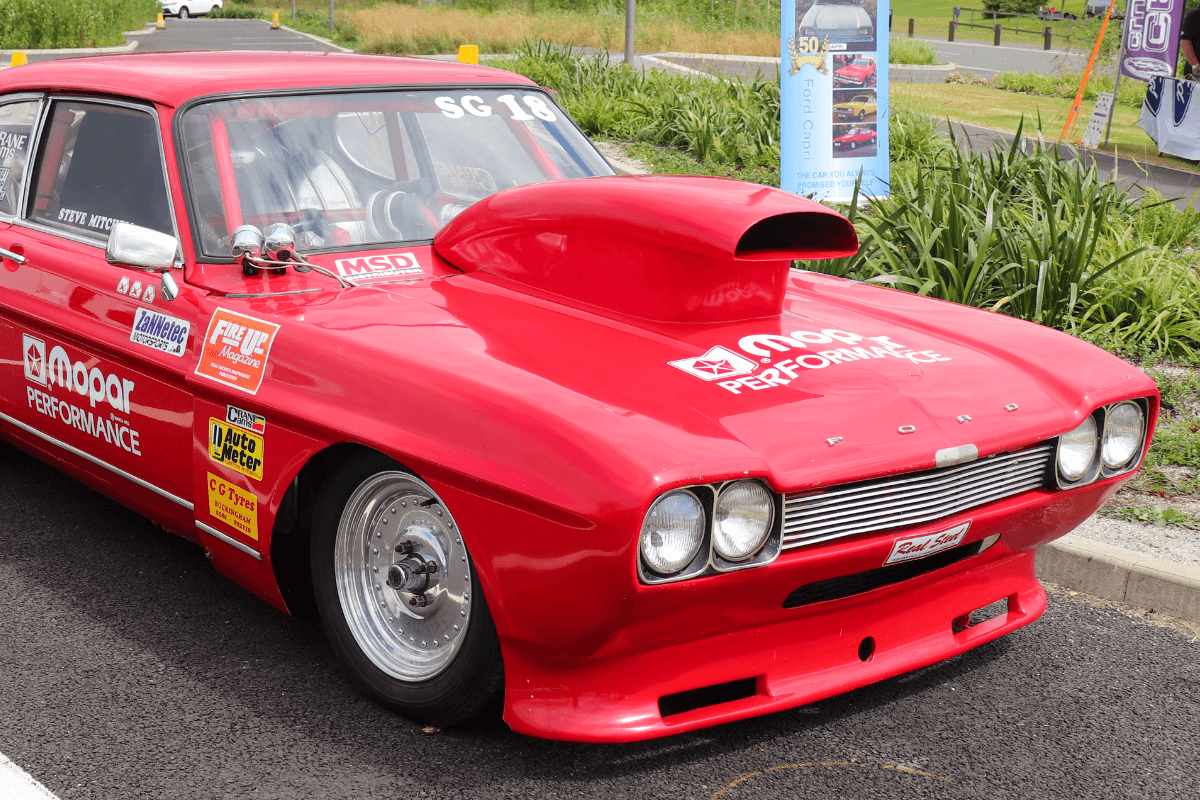
A “Draggin’ Wagon” refers to a car that has been specifically modified or built for drag racing, focusing on speed and acceleration.
These cars are designed to go from zero to top speed as quickly as possible, often featuring powerful engines, specialized tires, and lightened bodies to improve performance on the strip.
“Draggin’ Wagon” is a playful nickname for these high-performance vehicles, especially when they’re used for street racing or at official drag racing events.
The term emphasizes the car’s function—racing—while also giving it a fun, almost rebellious edge.
Examples in sentences:
- “His draggin’ wagon tore up the track last weekend with a new engine upgrade.”
- “They’ve souped up their old car into a real draggin’ wagon.”
- “That draggin’ wagon is one of the fastest cars at the track!”
- “We spent all afternoon at the dragstrip testing out our draggin’ wagon.”
- “The draggin’ wagon’s turbocharged engine gave it the edge in every race.”
Dragster
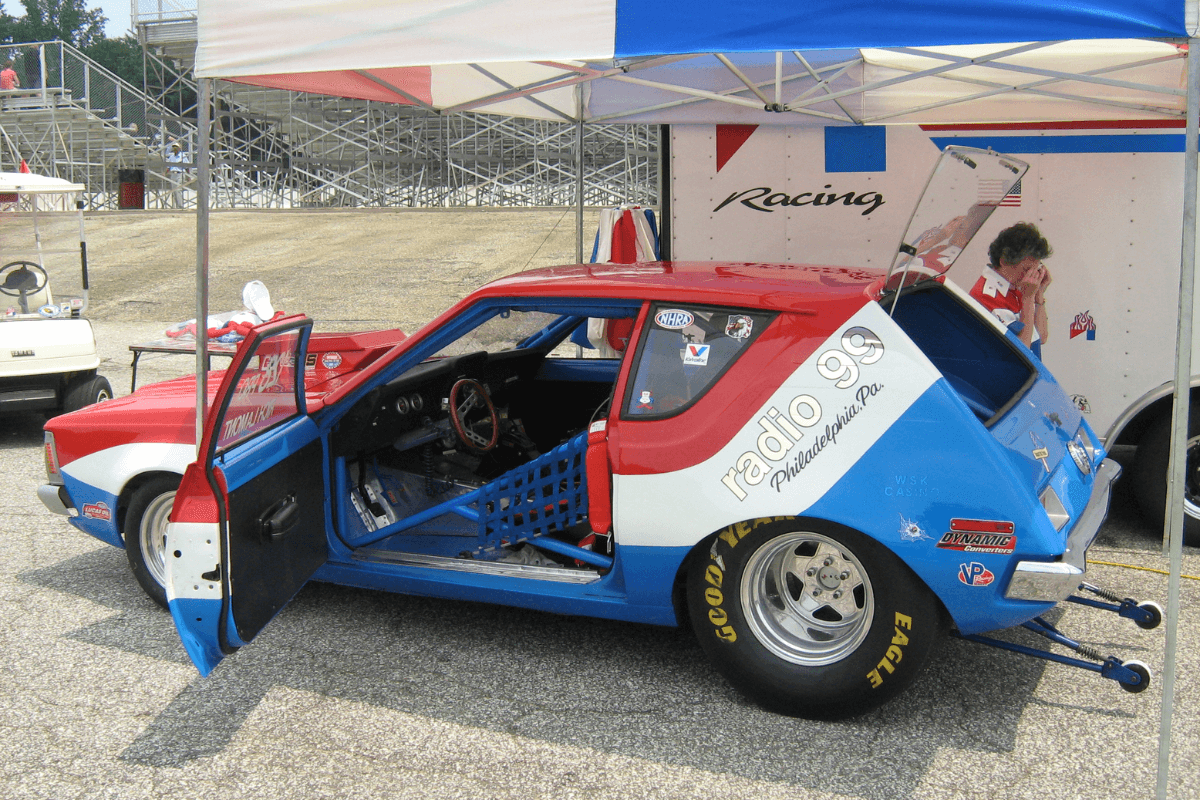
A “Dragster” is a high-performance car specifically built for drag racing, designed for short bursts of extreme speed.
These cars are often extremely lightweight, with powerful engines and a sleek, aerodynamic shape.
Dragsters are purpose-built for straight-line racing, and their design focuses entirely on acceleration and speed.
They can reach incredible speeds in a matter of seconds and are commonly seen in professional drag racing events.
The word “dragster” is synonymous with fast, high-powered racing machines that dominate on the track.
Examples in sentences:
- “The dragster’s engine roared to life as it prepared for the next race.”
- “He dreams of owning a custom-built dragster one day.”
- “The dragster’s sleek design made it one of the fastest cars on the circuit.”
- “She watched the dragster tear down the track, leaving everything else behind.”
- “They’re known for building world-record-breaking dragsters at the shop.”
Drifter
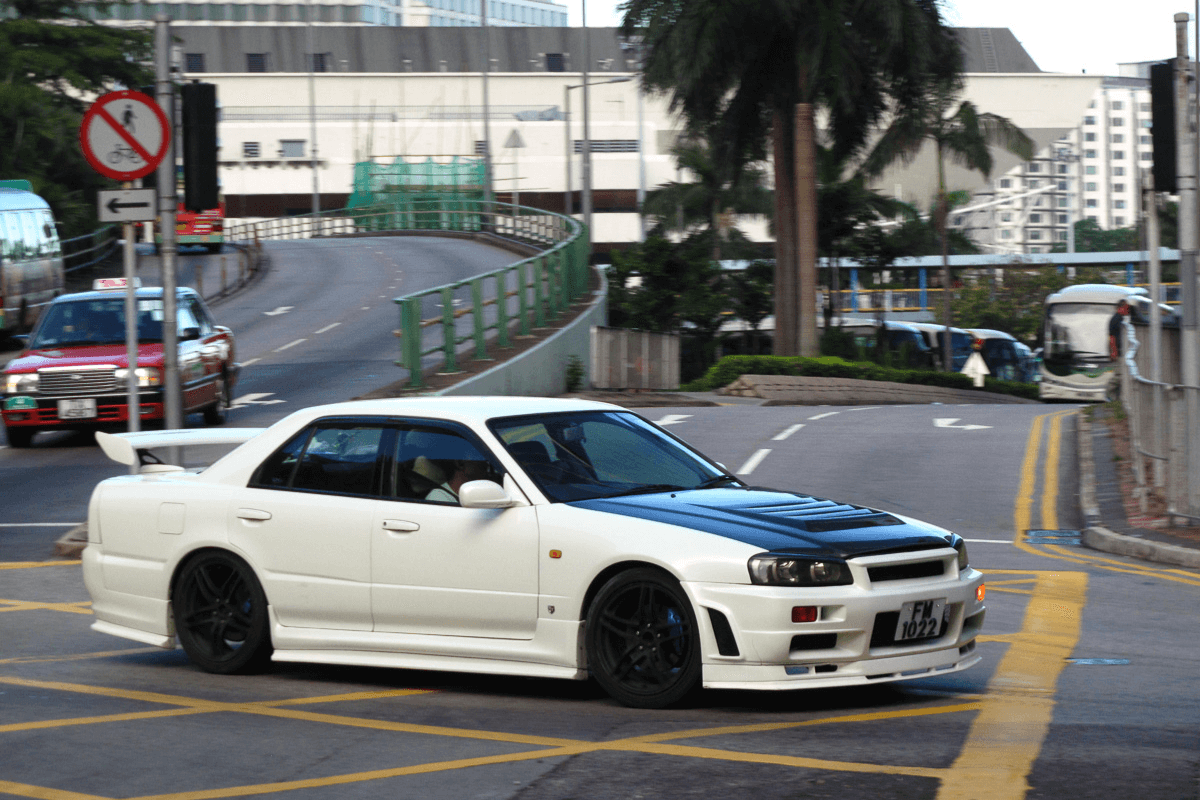
A “Drifter” is a car that has been specifically modified for the motorsport of drifting, where drivers intentionally oversteer to maintain control while navigating corners.
Drifting requires a car to have a lot of power and a precise balance of handling.
Drift cars often feature upgrades like suspension modifications, upgraded tires, and powerful engines.
The term “drifter” has become popular within the car culture, particularly among racing enthusiasts who enjoy the adrenaline rush of this high-skill driving technique.
It’s not just a car; it’s a lifestyle for many car enthusiasts.
Examples in sentences:
- “That car is built for drifting—he’s got the best drifter on the circuit.”
- “The drifter slid around the corner effortlessly, showing off his skills.”
- “They entered their favorite drifter into the competition for a chance to win.”
- “He spends every weekend tuning his drifter for better performance.”
- “The drifter’s tires screeched as it whipped around the bend.”
Drop-top
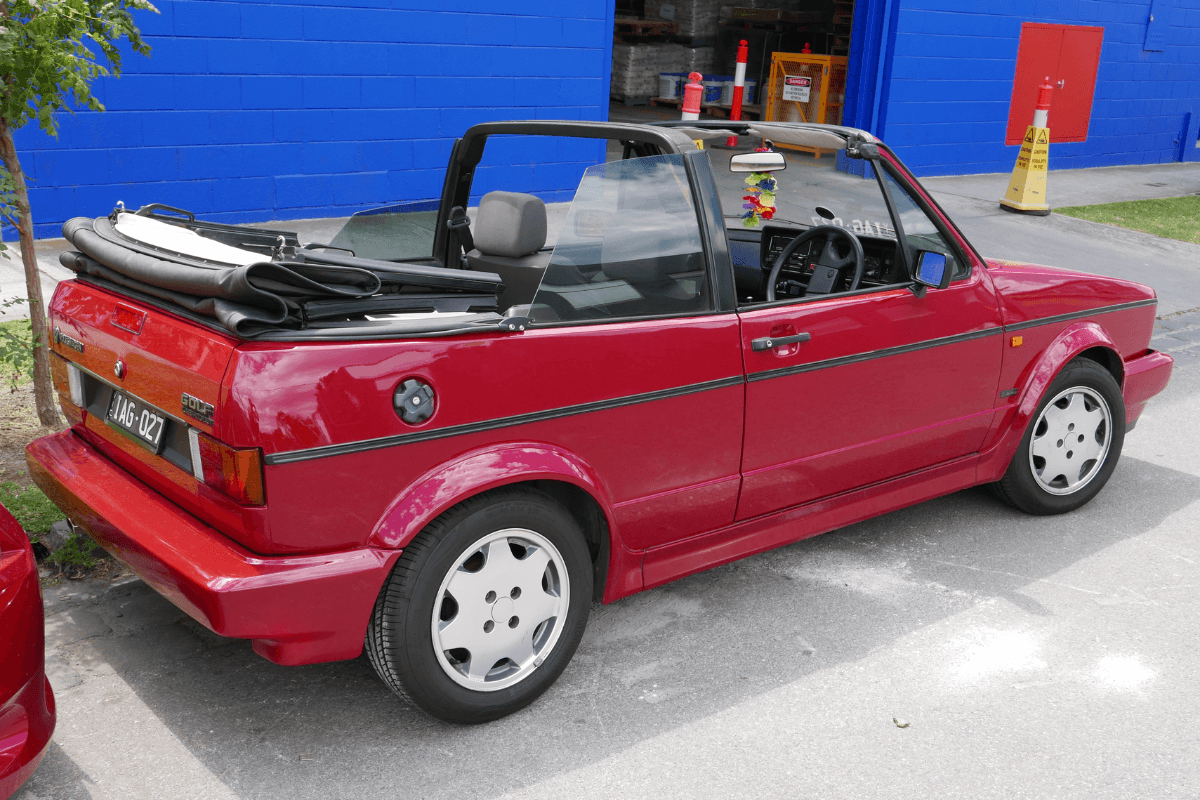
A “Drop-top” refers to a convertible car, one with a roof that can be lowered or completely retracted.
This allows the driver and passengers to enjoy an open-air experience, often associated with leisurely drives on sunny days.
Drop-tops are typically associated with luxury sports cars or classic vehicles, but the term is often used for any vehicle with a retractable roof.
They are popular for scenic drives and often have a more relaxed, laid-back vibe compared to standard vehicles.
Examples in sentences:
- “She drove down the highway in her drop-top, enjoying the breeze.”
- “The drop-top’s sleek design made it the highlight of the car show.”
- “I’ve always wanted a drop-top for those summer road trips.”
- “They took the drop-top out for a spin along the coast.”
- “Nothing beats the feeling of driving in a drop-top on a sunny afternoon.”
Dropper
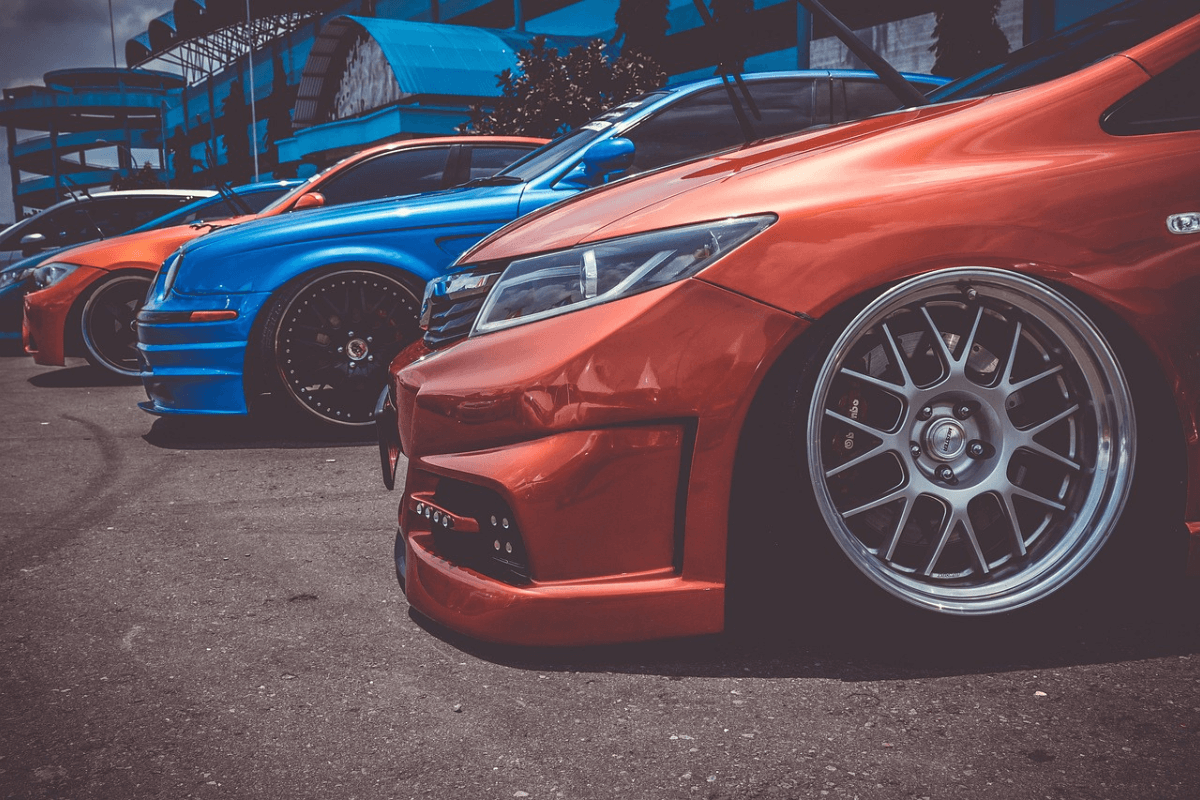
A “Dropper” is a term used to describe a car that has been modified by lowering its suspension, which is referred to as “dropping” the car.
This modification not only makes the car look sleeker and sportier, but it can also improve handling by lowering the center of gravity.
Dropped cars are especially popular in the custom car scene, as they can give a vehicle a more aggressive and unique stance.
The term “dropper” highlights the lowered, “slammed” look that many car enthusiasts seek for their rides.
Examples in sentences:
- “He spent months working on his dropper to get the perfect stance.”
- “That dropper is one of the lowest cars on the street!”
- “They drove their dropper to the meet-up, turning heads along the way.”
- “I love how that dropper handles—it’s so much more responsive.”
- “The dropper’s suspension setup makes it handle corners like a dream.”
Dune Buggy
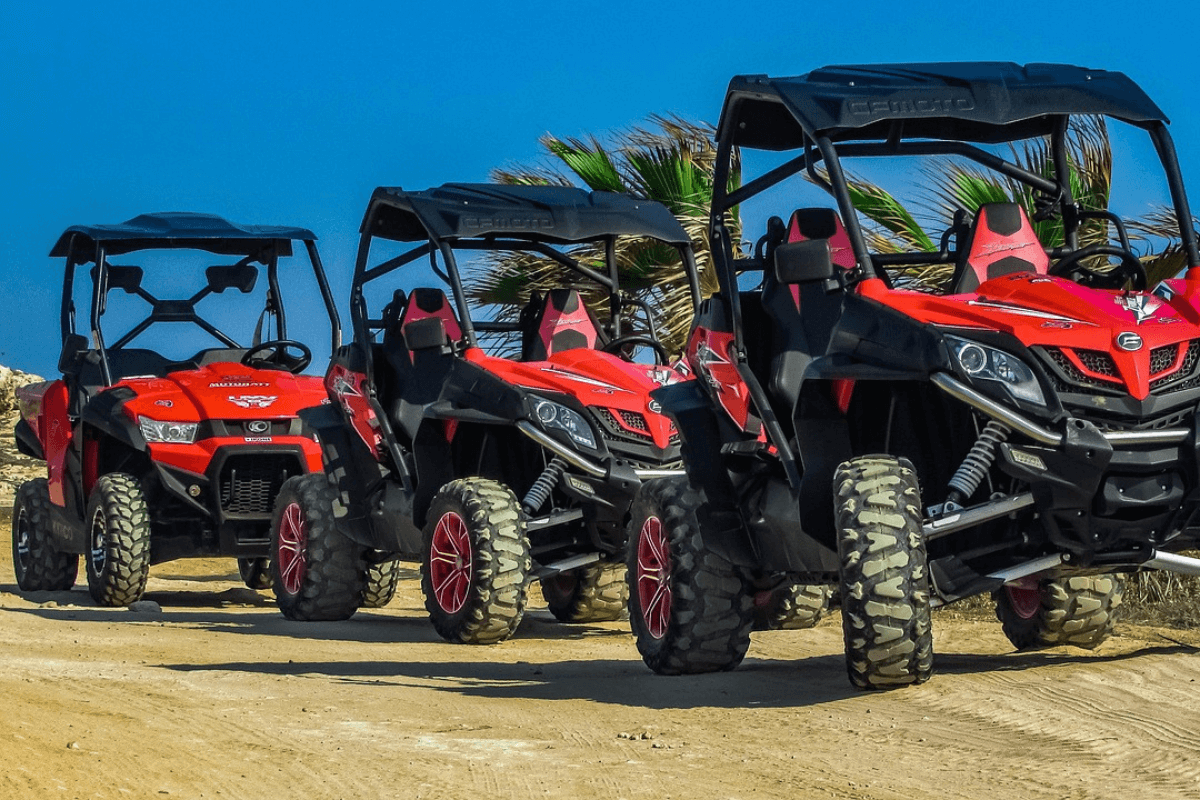
A “Dune Buggy” is a type of off-road vehicle designed to navigate rough, sandy, and uneven terrains.
These vehicles are usually lightweight with large tires and minimal bodywork, allowing for greater agility and speed across dunes, beaches, and deserts.
Dune buggies are popular in recreational settings, particularly for desert or beach driving, and can also be seen in competitive off-road races.
The open, stripped-down design of the dune buggy makes it an ideal vehicle for adventurous driving, where speed and maneuverability are key.
Examples in sentences:
- “We spent the afternoon racing dune buggies along the beach.”
- “His dune buggy can handle any terrain, even the toughest sand dunes.”
- “They rented a dune buggy for their desert safari adventure.”
- “The dune buggy kicked up dust as it zoomed across the open desert.”
- “She loves the thrill of driving her dune buggy on the sand dunes.”
Farm Truck
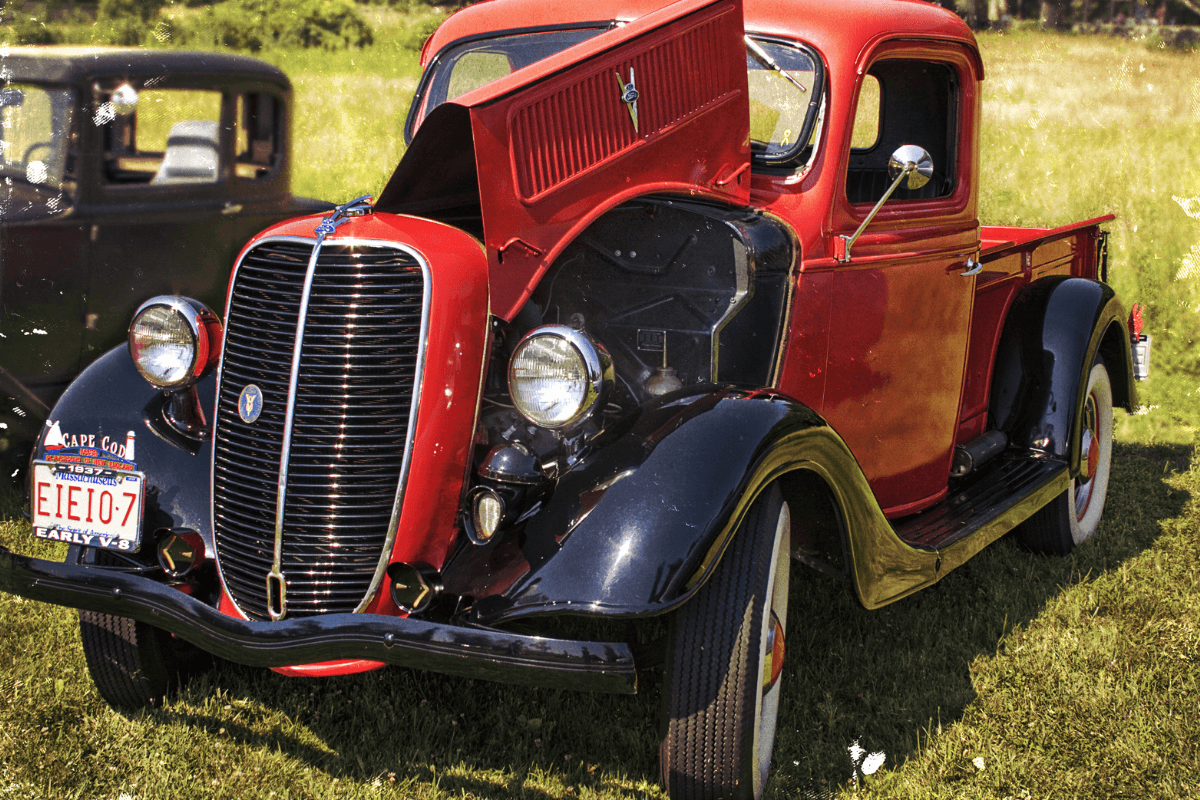
A “Farm Truck” is a term for a sturdy, often older truck that is primarily used for farm-related tasks.
These trucks are built for hard work, hauling heavy loads, transporting goods, and carrying equipment across rural landscapes.
They are generally not known for being sleek or flashy but for their reliability and durability.
Many farm trucks have been passed down through generations, continuing to serve as essential tools for farmers.
Though they may lack modern features, farm trucks are beloved for their practicality and ruggedness.
Examples in sentences:
- “His farm truck has been with him for decades—it’s a real workhorse.”
- “They used their farm truck to haul supplies to the market.”
- “That old farm truck still runs like a charm, even after all these years.”
- “She spent all day driving the farm truck through the fields.”
- “A farm truck is an essential tool for anyone working in agriculture.”
Fiero
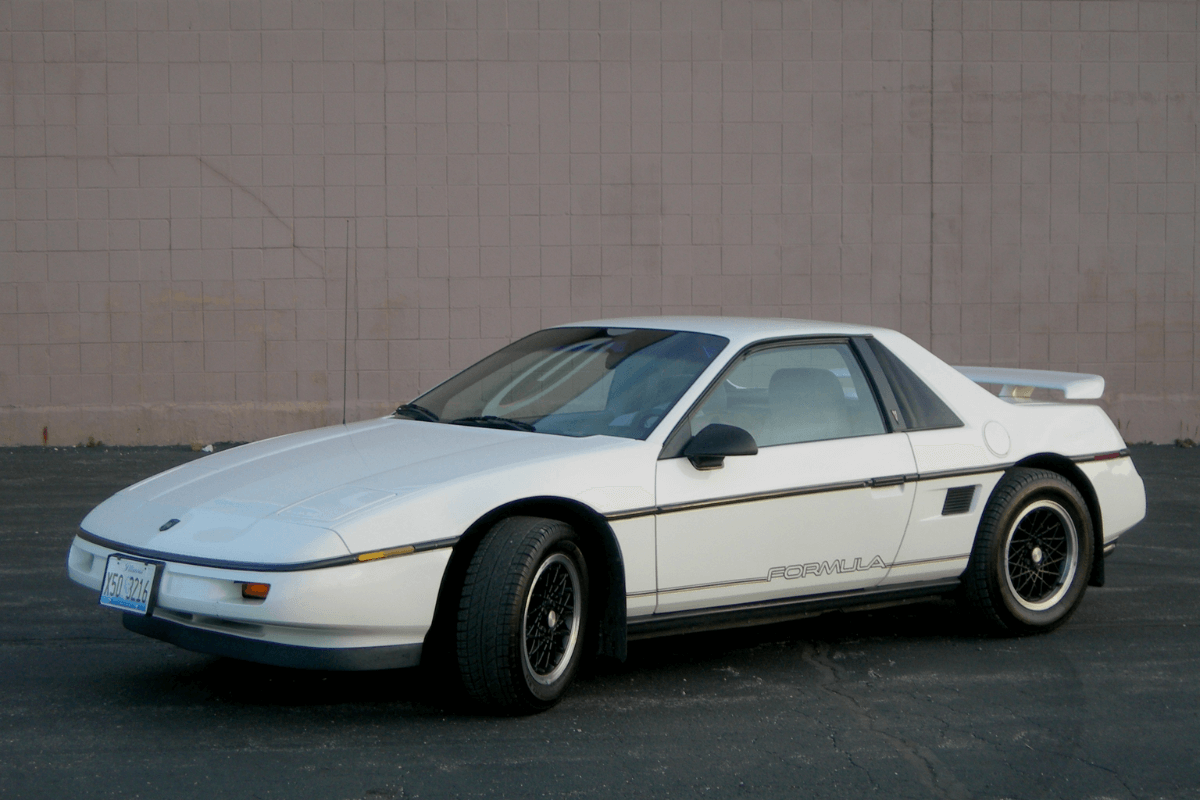
The “Fiero” is a mid-engine, small sports car that was produced by Pontiac between 1984 and 1988.
It was marketed as an affordable, compact alternative to more expensive European sports cars, earning the nickname “poor man’s Ferrari.”
Despite its somewhat limited success during its production years, the Fiero has become a cult classic among car enthusiasts, particularly those who appreciate its unique design and performance capabilities.
Its mid-engine layout and distinctive appearance made it stand out from other cars in its class.
Examples in sentences:
- “He’s been restoring his Fiero for years, and it looks amazing now.”
- “The Fiero’s unique styling makes it a standout at car shows.”
- “They joked that their Fiero was a Ferrari in disguise.”
- “The Fiero’s engine roars to life with impressive speed.”
- “Many car enthusiasts dream of owning a restored Fiero one day.”
Four-Wheeler

A “Four-Wheeler” is a broad term used to describe any vehicle with four wheels, though it is often associated with off-road vehicles like ATVs or SUVs.
These vehicles are designed for navigating rough terrains, providing stability and versatility for various driving conditions.
Four-wheelers are particularly popular for outdoor activities, such as camping, hunting, or off-roading adventures.
The term is commonly used in rural areas or by those involved in off-road sports, as it emphasizes the vehicle’s ability to tackle tougher surfaces compared to standard cars.
Examples in sentences:
- “We took the four-wheeler out for a spin on the rugged mountain trail.”
- “She loves her four-wheeler—it’s perfect for off-road adventures.”
- “The four-wheeler bounced over the rocky terrain with ease.”
- “That’s a powerful four-wheeler, built to handle anything.”
- “They raced their four-wheelers through the desert, kicking up dust behind them.”
G-Wagon

The “G-Wagon” (short for Geländewagen, meaning “terrain vehicle” in German) is a high-end SUV produced by Mercedes-Benz.
Originally designed as a rugged military vehicle, it has since become a status symbol, especially among celebrities and luxury car enthusiasts.
The G-Wagon is known for its distinctive boxy design, powerful performance, and premium features.
Despite its off-road capabilities, it is often seen in cities as a luxury statement.
The vehicle’s blend of toughness and elegance makes it one of the most sought-after SUVs in the world.
Examples in sentences:
- “She pulled up to the event in a matte black G-Wagon, turning heads instantly.”
- “Even though the G-Wagon was built for off-roading, most owners never take it beyond city streets.”
- “His dream car has always been a fully customized G-Wagon with all the luxury upgrades.”
- “Celebrities love the G-Wagon for its blend of power and prestige.”
- “The G-Wagon’s price tag might be steep, but its reputation is unmatched.”
Gas Guzzler
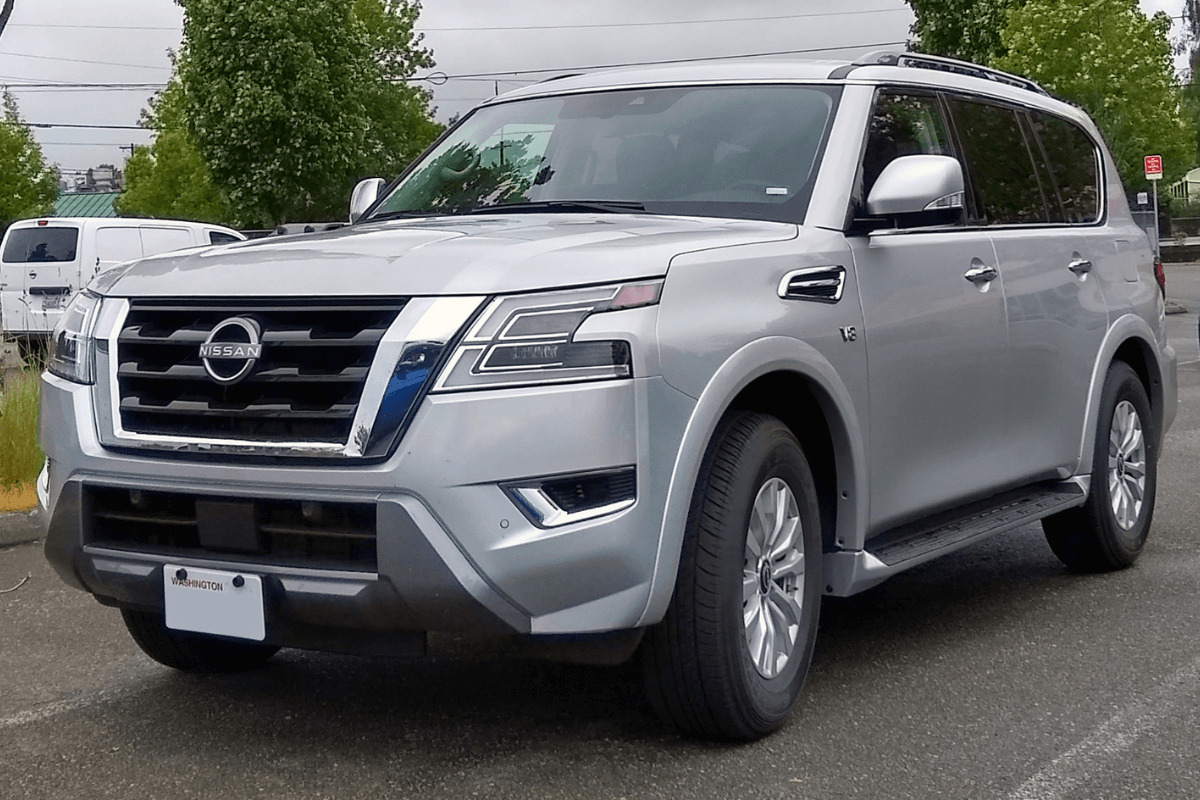
A “Gas Guzzler” is a term used to describe a car or vehicle that consumes an excessive amount of fuel.
Typically, these vehicles are large trucks, SUVs, or high-performance sports cars that are built for power and performance rather than fuel efficiency.
While these cars may offer impressive performance, they are often criticized for their environmental impact and high running costs.
The term is often used humorously or critically, especially by those who favor more fuel-efficient or environmentally friendly alternatives.
Examples in sentences:
- “That truck is a gas guzzler, it costs a fortune to fill up!”
- “He loves his muscle car, even though it’s a gas guzzler.”
- “The gas guzzler roared down the highway, burning through fuel with every mile.”
- “They switched to a hybrid after realizing how much the gas guzzler was costing them.”
- “It’s a great car, but unfortunately, it’s a gas guzzler.”
Gasser
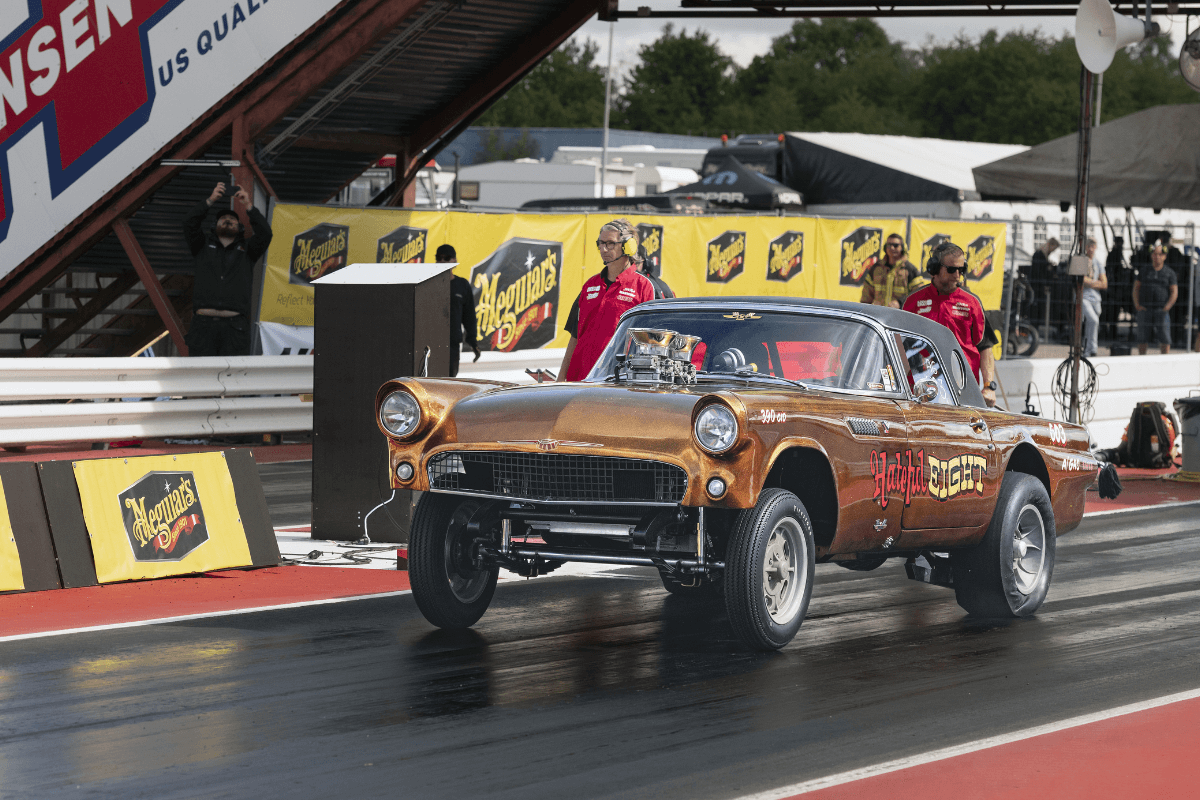
A “Gasser” is a type of modified car, typically from the 1950s or 1960s, that was built for drag racing.
The car’s modifications usually include a powerful engine, a lightened body, and altered suspension to improve performance on the drag strip.
Gassers are characterized by their lifted front ends, aggressive stance, and often distinctive styling, including vintage decals and racing stripes.
While they were originally built for speed, many Gassers have become prized collector’s items and are often seen at classic car shows and racing events.
Examples in sentences:
- “That gasser was one of the fastest cars on the strip, beating every competitor.”
- “He restored a classic gasser and entered it into the drag race.”
- “The gasser’s engine roared as it sped down the track, leaving a trail of smoke.”
- “They admired the gasser’s retro look and powerful performance at the car meet.”
- “She built her dream gasser, making sure every modification was top-notch.”
Go-Kart

A “Go-Kart” is a small, four-wheeled vehicle, typically powered by a gas or electric engine.
They are designed for short, fast bursts of speed and are often used in recreational racing or by kids.
Go-karts are especially popular at amusement parks and go-kart tracks, where individuals can race in controlled environments.
Despite their small size, they can reach impressive speeds, and competitive go-kart racing has even evolved into a professional sport.
The term “go-kart” has become synonymous with fun, low-cost motorsport that allows people of all ages to experience racing.
Examples in sentences:
- “He spent the afternoon at the track, zooming around in a go-kart.”
- “They had a blast racing go-karts at the amusement park.”
- “The go-kart was small, but it was surprisingly fast!”
- “She entered a go-kart race for the first time and came in second place.”
- “Go-karts are a great way to introduce kids to the world of racing.”
Guzzler
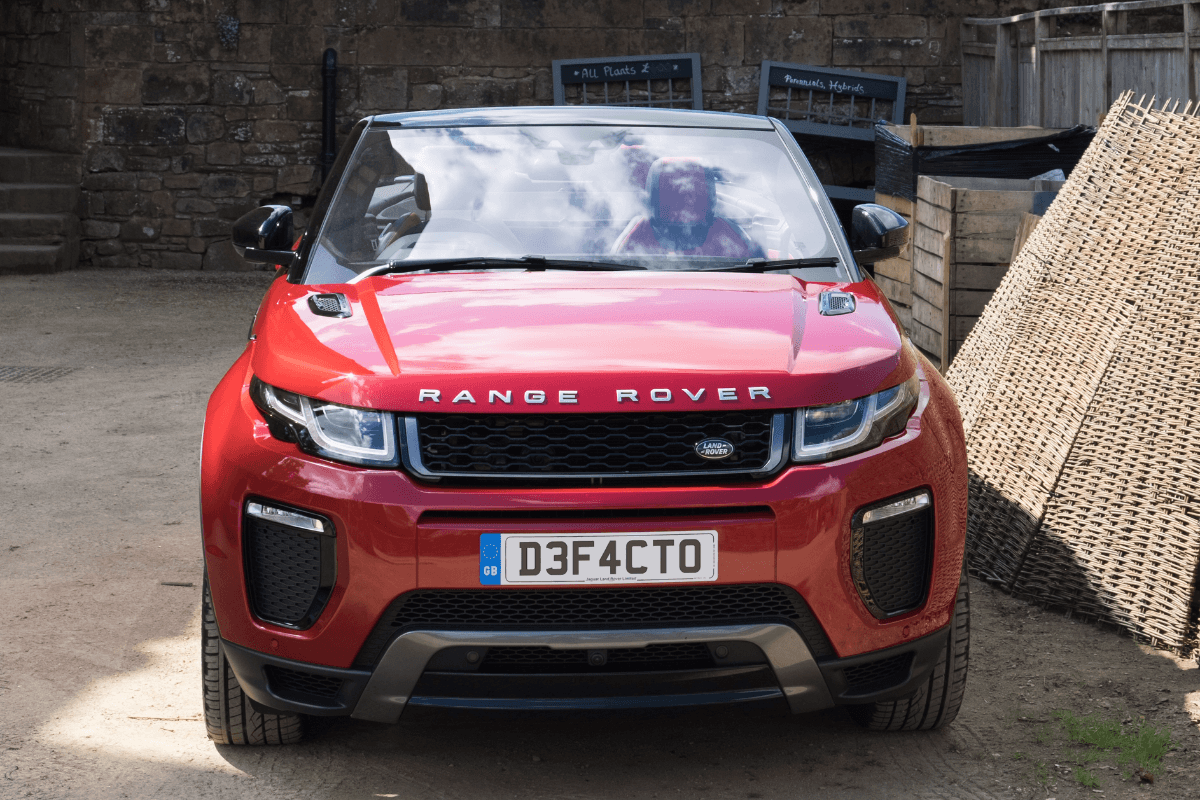
A “Guzzler” is a term used to describe any vehicle that uses a large amount of fuel.
Often, these are bigger cars like SUVs, trucks, or high-performance sports cars that prioritize power and performance over fuel efficiency.
The term “guzzler” is typically used in a critical or joking manner, highlighting the high fuel consumption of these vehicles.
While these cars may offer superior speed, power, or towing capacity, they are often seen as inefficient, especially in today’s eco-conscious world.
Examples in sentences:
- “That truck is a real guzzler—it takes forever to fill up the tank!”
- “She drives a guzzler, but she loves the power it has on the open road.”
- “They traded in their gas guzzler for something more fuel-efficient.”
- “The guzzler roared down the highway, burning through fuel with every mile.”
- “It’s a beautiful car, but sadly, it’s a guzzler.”
Hatch
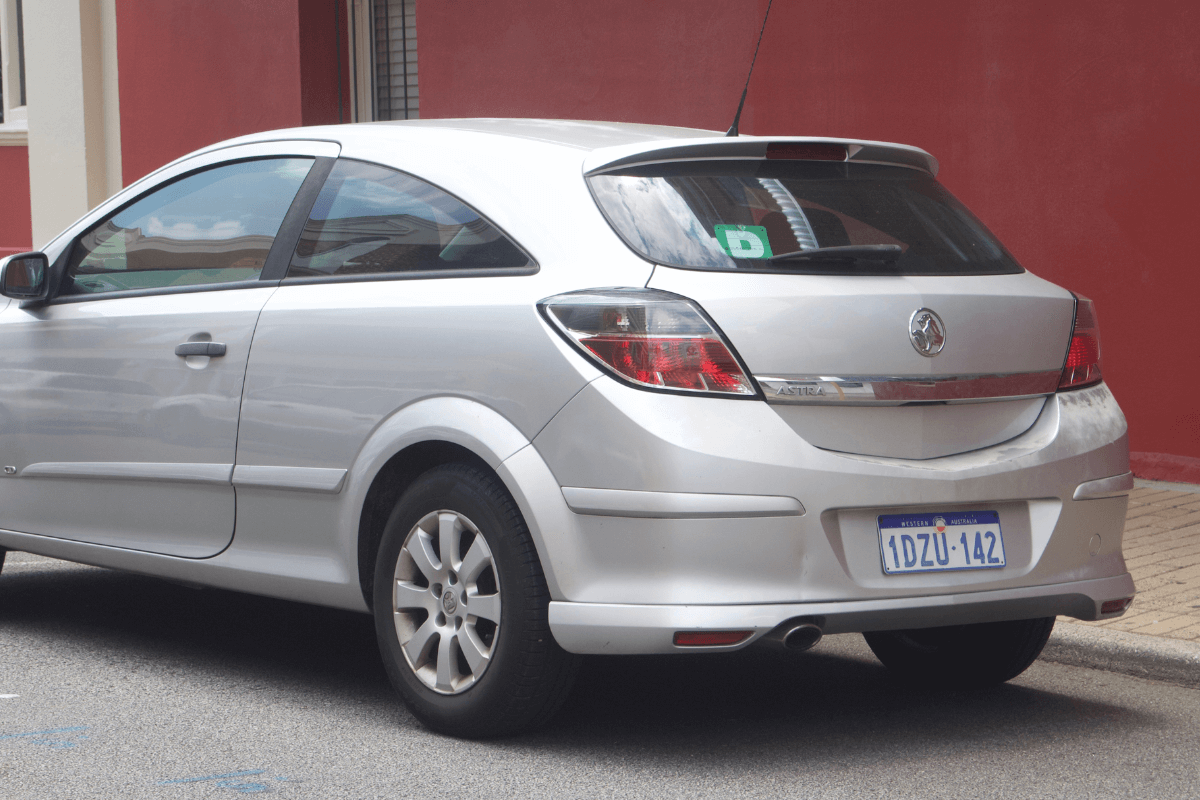
A “Hatch” refers to a hatchback, a type of car that has a rear door which swings upwards, allowing for easy access to the car’s cargo area.
Hatchbacks are popular for their practicality, as they offer more space in the trunk compared to sedans, and their design allows for a more flexible cargo capacity.
Hatchbacks are often compact and fuel-efficient, making them popular among city drivers.
The term “hatch” is a casual shorthand that emphasizes the convenience of the rear hatch, especially in smaller cars that require more trunk space without sacrificing maneuverability.
Examples in sentences:
- “She loves her hatch for its practicality, especially when she needs to carry groceries.”
- “The hatch was perfect for packing up camping gear for the weekend trip.”
- “They chose a hatch because it was more versatile than a sedan.”
- “The hatch opened easily, revealing a spacious cargo area.”
- “He threw his surfboard in the back of his hatch before heading to the beach.”
Hooptie
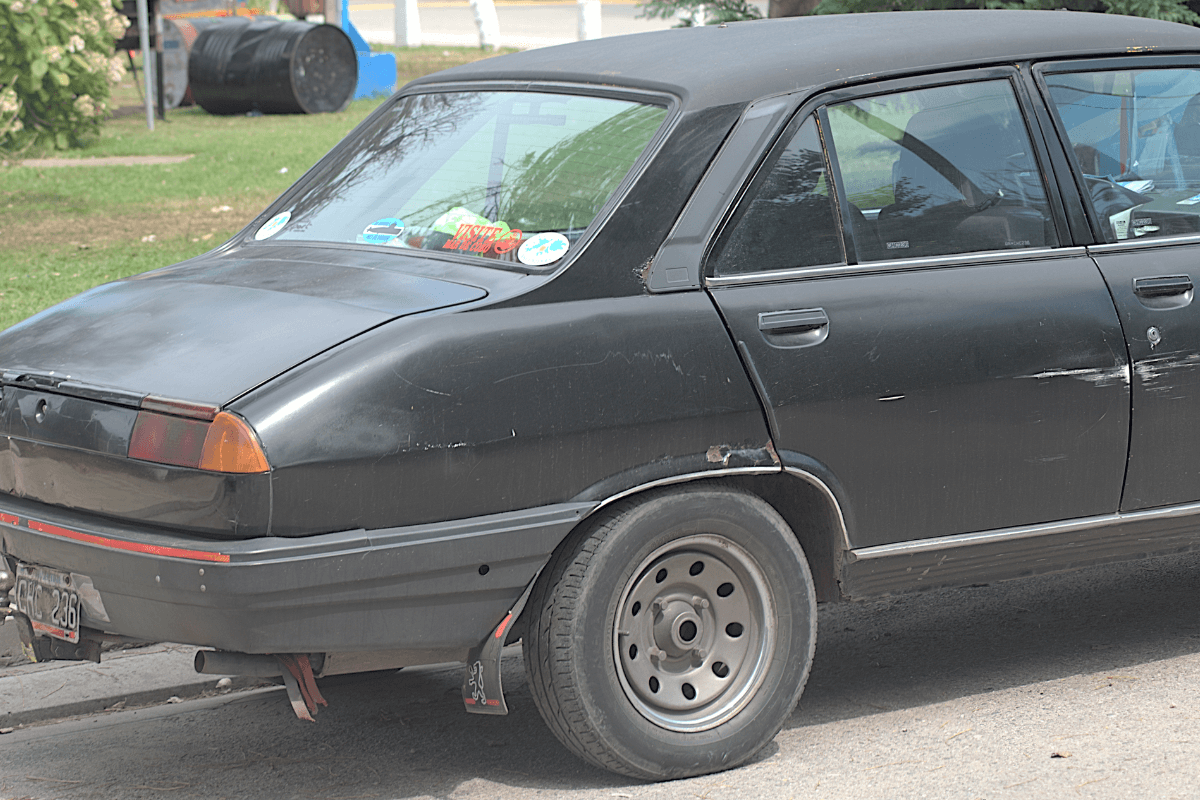
A “Hooptie” is a term used to describe an old, dilapidated car that is often in poor condition but still gets the job done.
These vehicles are usually cheap, worn out, and may have numerous mechanical issues.
Despite their poor appearance and reliability, hoopties are often used by those who don’t mind a bit of a fixer-upper or who need a car on a budget.
The term is used in a lighthearted, sometimes affectionate manner, acknowledging the vehicle’s flaws while also celebrating its ability to keep running against the odds.
Examples in sentences:
- “My hooptie has seen better days, but it still gets me to work every day.”
- “He drives a hooptie, but it’s surprisingly reliable.”
- “The hooptie rattled down the street, its engine making strange noises.”
- “We had to push the hooptie into the parking lot when it broke down again.”
- “She’s got an old hooptie, but it’s paid off, so she can’t complain.”
Hoopty
“Hoopty” is essentially a variant spelling of “hooptie,” and it shares the same meaning.
It refers to a rundown, often unreliable car that is typically old and not in the best condition.
While these cars may be far from glamorous, they often serve their purpose, getting their owners from point A to point B.
The term “hoopty” is most commonly used in urban slang, often in a humorous or affectionate way to describe a vehicle that might not look great but still keeps running.
Examples in sentences:
- “He drove a hoopty, but it got him through some tough times.”
- “That hoopty might look rough, but it’s still a great little car.”
- “They were cruising around in their hoopty, windows down and music blasting.”
- “I’m driving a hoopty until I can save up for something better.”
- “She proudly showed off her hoopty, a symbol of her resilience.”
Hot Rod
A “Hot Rod” is a classic or vintage car that has been heavily modified to improve its speed and performance.
Typically, hot rods feature powerful engines, custom bodywork, and other enhancements designed to increase horsepower and handling.
The hot rod culture originated in the 1930s and 1940s in the United States, and it has remained a symbol of automotive customization and performance.
These cars are often used in drag racing and other competitive motorsports, and they have become iconic symbols of American car culture.
Examples in sentences:
- “His hot rod could leave any car in the dust on the open road.”
- “They spent years restoring the classic hot rod to its former glory.”
- “The hot rod gleamed under the sun, its shiny chrome reflecting the light.”
- “She showed off her hot rod at the car show, drawing attention from everyone.”
- “He built his own hot rod from the ground up, modifying every part.”
Hunk of Junk
A “Hunk of Junk” is a colloquial term for a vehicle that is old, damaged, and barely functioning.
This term often implies that the car is in such bad shape that it’s no longer valuable or reliable.
While it can be used humorously or in a lighthearted way, the term typically conveys frustration with a car that has too many issues to fix.
Despite its negative connotation, some people may still hold onto their “hunk of junk” out of sentimentality or necessity, especially if the vehicle is still technically running.
Examples in sentences:
- “That old car is nothing but a hunk of junk—it’s been breaking down every other week.”
- “I finally sold my hunk of junk for scrap metal.”
- “The hunk of junk sputtered to a stop in the middle of the street.”
- “He spent all his money fixing up that hunk of junk, but it never ran right.”
- “She refused to get rid of her hunk of junk, even though it was falling apart.”
Iron Horse
“Iron Horse” is a nostalgic term used to describe a motorcycle, especially older or classic models.
The term dates back to the early 20th century, when motorcycles and cars were first gaining popularity, and it refers to the powerful, machine-like quality of these vehicles.
While the term can be used for any motorcycle, it often evokes images of vintage bikes, particularly those from the 1950s and 1960s.
The “Iron Horse” became a symbol of freedom and adventure, capturing the essence of motorcycle culture and the thrill of the open road.
Examples in sentences:
- “He rode his iron horse across the country, enjoying the freedom of the open road.”
- “The iron horse roared to life, and he sped off into the distance.”
- “She showed off her restored iron horse at the motorcycle rally.”
- “The old iron horse had seen better days, but it still had plenty of power.”
- “He couldn’t wait to take his iron horse out for a spin on the weekend.”
Jalopy
A “Jalopy” is a term for an old, decrepit car that is often in poor working condition.
The term was popularized in the early 20th century, and it typically refers to a vehicle that has seen better days, usually due to age or neglect.
While “jalopy” is often used humorously or affectionately, it is generally understood to mean a car that is no longer reliable or desirable.
Despite its condition, a jalopy might still serve its purpose, albeit with constant repairs and maintenance.
Examples in sentences:
- “He drove a jalopy that broke down every few miles, but it was all he could afford.”
- “Her jalopy was the laughingstock of the neighborhood, but it kept on running.”
- “They finally parted ways with their old jalopy after it stopped starting altogether.”
- “The jalopy sputtered and coughed, but somehow made it through the road trip.”
- “It may have been a jalopy, but it had character.”
Junker
A “Junker” is a term used to describe a vehicle that is so old and damaged that it is considered a candidate for scrap.
The car is often no longer operational or has a value only in parts or metal. Junkers are typically seen as unwanted vehicles, either left to rot or sold to scrapyards.
However, some people may keep junkers for sentimental reasons or attempt to fix them up, even though they are often beyond repair.
Examples in sentences:
- “The junker sat in his yard for years before he finally decided to sell it for scrap.”
- “She couldn’t believe her junker still started, even though it was missing half its parts.”
- “They turned their old junker into a DIY project, restoring it bit by bit.”
- “The junker was taking up too much space in the driveway, so they finally had it towed away.”
- “He couldn’t get a single offer for the junker, so he just scrapped it.”
Kart
“Kart” typically refers to a go-kart, a small, open-wheeled vehicle designed for racing.
These vehicles are often used in competitive go-karting, but they are also popular for recreational use at karting tracks.
While go-karts are generally designed for short, high-speed races, they are usually much smaller and less powerful than regular cars.
Karts can be powered by either a small engine or electric motors, making them fun and accessible for all ages.
Examples in sentences:
- “The kids had a blast racing around the track in their karts.”
- “He spent his childhood dreaming of becoming a professional go-kart racer.”
- “She took her first spin in a kart, and now she’s hooked on the sport.”
- “The kart was a perfect choice for a weekend getaway to the amusement park.”
- “He upgraded his kart with a new engine to get faster lap times.”
Lambo
“Lambo” is a shortened, informal way to refer to a Lamborghini, an Italian brand known for producing luxury sports cars.
These cars are famous for their sleek designs, high performance, and exorbitant price tags.
Lamborghini is often seen as a symbol of wealth, success, and exclusivity.
The term “Lambo” has become widely recognized in popular culture, often used to convey the idea of a flashy or aspirational vehicle.
Examples in sentences:
- “He pulled up in a brand new Lambo, turning heads wherever he went.”
- “She dreamed of owning a Lambo ever since she was a teenager.”
- “The Lambo’s engine roared to life, drawing a crowd in the parking lot.”
- “You can always spot a Lambo in a sea of regular cars.”
- “They made it to the top and finally bought themselves a Lambo.”
Land Yacht
A “Land Yacht” is a term used to describe an oversized, often plush vehicle that offers an extremely comfortable and spacious ride.
These cars are typically associated with luxury and tend to have long, wide bodies with luxurious interiors.
Land yachts were more common in the mid-20th century, especially among American manufacturers, but the term is sometimes used today to describe any large, comfortable vehicle that prioritizes smoothness over speed.
Examples in sentences:
- “The old Cadillac was a true land yacht, with leather seats and a smooth ride.”
- “They cruised down the highway in their land yacht, enjoying the spacious interior.”
- “A land yacht may not be the fastest, but it certainly is the most comfortable.”
- “In the 1960s, many American cars were referred to as land yachts.”
- “She loved driving the land yacht for long road trips, as it was like floating on air.”
Lead Sled
A “Lead Sled” is a term used to describe a car, typically an older model, that has been extensively modified, often for the purpose of customizing its appearance.
The term originated in the 1940s and 1950s when car enthusiasts would reshape the metal body of their vehicles, making them lower and more streamlined.
These modifications often involved extensive use of lead in the bodywork to smooth out imperfections, giving the car its “sled” appearance.
The result is a unique, personalized ride that stands out.
Examples in sentences:
- “His lead sled had all the custom features: lowered suspension, shaved doors, and chrome accents.”
- “They spent years restoring the old lead sled to its former glory.”
- “She loved the sleek design of her lead sled, with its glossy black finish and polished rims.”
- “The lead sled was a work of art, blending vintage charm with modern performance.”
- “He could always spot a lead sled in a crowd, thanks to its unmistakable style.”
Leadfoot
A “Leadfoot” is someone known for driving their car very quickly, often speeding or driving aggressively.
The term is believed to come from the idea that having a heavy foot on the accelerator pedal is akin to carrying the weight of lead. Leadfoots are often seen as reckless drivers, as they tend to push their cars to their limits. While the term can have a negative connotation, it can also be used more lightheartedly to describe someone who simply enjoys speed.
Examples in sentences:
- “You could always count on him to be the leadfoot in the group, speeding ahead of everyone else.”
- “Her leadfoot habits got her in trouble with the police more than once.”
- “He was known as a leadfoot on the race track, always taking the corners at full speed.”
- “The leadfoot driver zoomed past the speed limit signs without a second thought.”
- “She finally had to slow down after getting a ticket for being a leadfoot on the highway.”
Limo
A “Limo” is short for “limousine,” a long, luxury vehicle often used for special occasions such as weddings, proms, or corporate events. These vehicles are typically equipped with high-end amenities such as plush seating, a sound system, and sometimes even features like a bar or TV screens. Limousines are often associated with wealth and extravagance, offering a VIP experience to passengers who are looking to travel in style and comfort.
Examples in sentences:
- “They arrived at the wedding in a stretch limo, feeling like celebrities.”
- “The limo was the perfect way to celebrate their anniversary in style.”
- “We hired a limo for the bachelorette party, and it was an unforgettable ride.”
- “He felt like royalty as he was chauffeured around town in the limo.”
- “The limo had tinted windows, so no one could see the surprise inside.”
Low and Slow
“Low and Slow” refers to a style of car culture where the emphasis is on cruising at a leisurely pace while showcasing the car’s unique appearance, often with lowered suspension and customized details. Cars in the “low and slow” category are typically not focused on high speed or performance; instead, they prioritize style, comfort, and visual appeal. The term is often associated with classic cars, lowriders, and custom builds that emphasize a smooth, laid-back ride.
Examples in sentences:
- “He spent hours fine-tuning his ride to be low and slow, making sure it turned heads wherever he went.”
- “The low and slow cruise down the boulevard was the highlight of the car show.”
- “They loved taking their low and slow car to the beach, where it was all about the relaxed vibe.”
- “The low and slow movement celebrates the joy of the journey, not just the destination.”
- “He was a fan of low and slow cars, believing that there’s no rush when you’ve got a beautiful ride.”
Lowrider
A “Lowrider” is a type of customized car that is designed to be lowered to the ground, often using hydraulics or air suspension systems to allow the car’s height to be adjusted. These modifications give lowriders their signature appearance, with the car sitting closer to the road. Lowriders are typically associated with car culture in places like California and are often adorned with colorful paint, intricate designs, and flashy rims. The goal is not just to drive low but to do so with style and flair.
Examples in sentences:
- “His lowrider was a masterpiece, with chrome rims and an intricate paint job.”
- “They spent hours at the car show, watching the lowriders raise and lower their suspensions.”
- “She loved cruising down the street in her lowrider, feeling the smooth ride and enjoying the attention.”
- “The lowrider community is all about customizing cars to reflect personal style.”
- “He had the hydraulics installed on his car, and now it’s a true lowrider.”
Mop Bucket
<p”A “Mop Bucket” is a derogatory term used to describe a car that is considered unattractive or of poor quality. The term implies that the car is so unattractive that it might be better suited for use as a mop bucket than a vehicle. Mop buckets are typically old, rusted, or in bad condition, and they may be seen as embarrassing to drive. However, in some cases, the term is used humorously, particularly by those who enjoy the challenge of fixing up and restoring these cars.”
Examples in sentences:
- “His car was a real mop bucket, but he loved working on it and fixing it up.”
- “The mop bucket broke down on the way to the party, but they still managed to get there.”
- “Despite being a mop bucket, it had character and always started right up.”
- “She found a cheap mop bucket at the junkyard and decided to turn it into a project car.”
- “They couldn’t stop laughing at the sight of the old mop bucket in their driveway.”
Mopar
<p”Mopar” is a term used to describe vehicles and automotive parts produced by Chrysler, particularly their line of performance and muscle cars. The term originated as a contraction of “Motor Parts” and has become synonymous with the brand’s high-performance vehicles. Mopar enthusiasts often refer to their cars and parts with pride, as the brand has a long history of producing powerful engines and unique designs. Mopar vehicles are celebrated for their speed, strength, and style, with a loyal following among car enthusiasts and collectors.”
Examples in sentences:
- “His Mopar collection included several classic muscle cars from the 1970s.”
- “She couldn’t wait to show off her new Mopar parts at the car meet-up.”
- “The Mopar community is known for its passion for restoring and customizing classic cars.”
- “He raced his Mopar Challenger at the drag strip, feeling the thrill of the engine’s power.”
- “Mopar enthusiasts love to talk about the best upgrades for their muscle cars.”
Mudder
“Mudder” is often used to describe trucks or SUVs that are equipped with large tires and rugged suspension systems to tackle challenging terrains. These vehicles are built to handle difficult off-road conditions, especially when the ground is muddy or uneven. The term is typically associated with vehicles that have been modified for off-road use, making them ideal for outdoor adventures, dirt trails, and rough landscapes.
Examples in sentences:
- “His mudder could easily climb the steep hills on the off-road trail.”
- “She took her mudder out for a drive through the forest and muddy puddles.”
- “A good mudder can handle even the toughest tracks with ease.”
- “His modified mudder was the talk of the off-road rally.”
- “The vehicle’s tires were designed for extreme muddy conditions, making it a true mudder.”
Muscle Car
“Muscle car” refers to a category of American-made cars that were produced with larger engines and designed for high performance. These vehicles are known for their powerful V8 engines and aggressive styling, making them a popular choice among car enthusiasts. The muscle car era peaked in the 1960s and 1970s, with iconic models like the Ford Mustang, Chevrolet Camaro, and Dodge Charger. Muscle cars continue to be celebrated for their speed, power, and bold presence on the road.
Examples in sentences:
- “He drove his classic muscle car down the highway, turning heads wherever he went.”
- “The muscle car scene is alive and well at car shows across the country.”
- “She had a taste for muscle cars and owned several vintage models.”
- “The roar of the muscle car engine is unmistakable at a race track.”
- “Muscle cars from the ’60s have a distinct look and sound that still captivate car lovers today.”
Old Faithful
“Old Faithful” is often used to describe a car that has been reliable over time, even if it’s not the newest model. The term conveys trust and dependability, especially when the vehicle has been in the owner’s possession for many years. Despite being an older model, it continues to start up and run well, making it a beloved companion for daily driving or long trips.
Examples in sentences:
- “My old faithful has never let me down, even after 200,000 miles.”
- “He took his old faithful on a road trip and it performed perfectly.”
- “That car may be old, but it’s still my old faithful—it just keeps going.”
- “When I need something reliable, I turn to my old faithful car.”
- “The old faithful vehicle has been in the family for generations and never once failed us.”
Pimp Mobile
“Pimp mobile” refers to a vehicle that has been extensively modified to reflect the owner’s personal style, usually with luxurious and flashy elements. These modifications may include custom paint jobs, oversized rims, premium sound systems, or unique interior designs. The term originated in pop culture and is often associated with flashy cars used in hip-hop music videos or films, symbolizing wealth and status.
Examples in sentences:
- “He drove up in his pimp mobile with neon lights and custom rims.”
- “Her pimp mobile caught everyone’s attention at the car show.”
- “The pimp mobile was more about style than practicality.”
- “They spent thousands turning their regular car into a pimp mobile.”
- “He liked to show off his new customizations to his friends with his pimp mobile.”
Poncho
“Poncho” is a playful nickname for the Pontiac brand, and it is especially used for the Pontiac Firebird, a model produced from the 1960s to the early 2000s. The Firebird became an iconic muscle car with sleek styling and strong performance. The term “Poncho” is often used with affection by car enthusiasts who admire the brand’s classic cars and the performance they offer.
Examples in sentences:
- “His old Poncho is still the coolest car on the block.”
- “I’ve always wanted to own a Poncho, and the Firebird is my dream car.”
- “The classic Poncho roared to life as it sped down the street.”
- “She was restoring her Poncho to its original glory after years of wear and tear.”
- “The Poncho’s V8 engine gives it the power and performance that muscle car fans crave.”
Power Wagon
“Power Wagon” originally referred to a line of military and civilian trucks made by Dodge, designed for carrying heavy loads and navigating rough terrain. Over time, the term has become synonymous with any rugged, reliable truck used for tough jobs or off-roading. These vehicles are known for their strength and durability, often used in construction, farming, or as personal off-roaders.
Examples in sentences:
- “His power wagon is built to handle the heaviest loads on the farm.”
- “The power wagon has made a comeback with new models designed for off-road enthusiasts.”
- “She drove her power wagon through the muddy terrain with ease.”
- “If you need a truck that can haul anything, the power wagon is your best bet.”
- “The power wagon’s large tires and strong suspension make it ideal for off-road adventures.”
Putt-putt
“Putt-putt” is a playful term used to describe small, older cars that make a distinctive puttering noise when driving. These vehicles are typically not known for their speed, but rather their reliability and simplicity. Often associated with older, economical cars, the term is used affectionately by those who enjoy these types of vehicles for their charm and nostalgia.
Examples in sentences:
- “He drove his old putt-putt car around the neighborhood, enjoying the slow pace.”
- “The putt-putt car may be slow, but it gets the job done every day.”
- “They decided to keep their putt-putt as a backup car because it was so reliable.”
- “She loved driving her little putt-putt, even though it wasn’t the fastest car.”
- “The putt-putt made its way up the hill slowly but surely.”
Ragtop
“Ragtop” refers to a car with a convertible roof, particularly one made of fabric or a soft material. The term “ragtop” originates from the fabric roofs used in older convertibles. While many modern convertibles use metal or hardtops, the ragtop term is still used to describe the classic, cloth roofs on cars that can be folded back for an open-air driving experience.
Examples in sentences:
- “They spent the afternoon cruising in their vintage ragtop, feeling the wind in their hair.”
- “The ragtop on his convertible was worn from years of use, but it still worked perfectly.”
- “She loved driving her ragtop on sunny days, feeling the breeze while she drove.”
- “A classic car with a ragtop can turn heads at any car show.”
- “He rolled down the streets in his ragtop, the roof down and the sun shining.”
Rattletrap
“Rattletrap” is a term used for cars that are old and in poor condition, often making loud rattling noises when they drive. These vehicles are usually seen as unreliable, with various mechanical issues causing them to shake, rattle, and make disturbing sounds. Despite their shabby appearance, rattletraps can often get from point A to point B with a bit of persistence and a lot of noise.
Examples in sentences:
- “He drove his rattletrap to work every day, despite its many mechanical problems.”
- “The rattletrap made so much noise, you could hear it coming from a mile away.”
- “She didn’t care about the looks of her rattletrap, as long as it ran.”
- “The rattletrap was on its last legs, but it kept going through thick and thin.”
- “They had to push the rattletrap to get it started after it broke down again.”
Ricer
“Ricer” is a slang term used to describe a car, often an import, that has been modified in ways that emphasize style over performance. These modifications can include oversized spoilers, neon lights, loud exhausts, and other aesthetic changes, often leading to a car that looks more flashy than functional. The term is sometimes used disparagingly, implying that the modifications are more about appearance than actual performance or quality.
Examples in sentences:
- “The streets were full of ricers, each car louder than the last.”
- “He added a massive spoiler to his car, but it was just another ricer move.”
- “Her car looked like a typical ricer, with its lowered suspension and neon underglow.”
- “They were all laughing at the ricer with the flashy decals and oversized rims.”
- “A lot of ricers focus on looks instead of upgrading the engine for better performance.”
Ride
“Ride” is a casual term used to refer to a car, particularly one that is seen as stylish, well-maintained, or customized. It can be used to describe any vehicle, but it is often associated with cars that stand out for their appearance or performance. In car culture, a “ride” is something to be proud of, whether it’s a new sports car or a well-loved classic.
Examples in sentences:
- “Check out his new ride; it’s got custom wheels and a killer sound system.”
- “She was cruising down the street in her shiny new ride, feeling on top of the world.”
- “That ride looks incredible—he must have spent a fortune on it.”
- “Everyone was jealous of his ride, especially after the custom paint job.”
- “My ride’s been acting up lately, but it’s still my pride and joy.”
Roadster
“Roadster” refers to a two-seater car, often with a sporty design and an open roof or convertible top. Roadsters are typically lightweight and designed for performance, making them ideal for leisurely drives or weekend cruising. They are known for their sleek lines, low profile, and minimalist features, offering a raw, engaging driving experience.
Examples in sentences:
- “He took his vintage roadster for a spin down the coastal highway.”
- “The roadster’s design was built for speed and style, perfect for a sunny day drive.”
- “She always dreamed of owning a roadster, feeling the wind in her hair as she drove.”
- “The classic roadster was restored to its original glory with leather seats and chrome accents.”
- “A roadster’s simplicity and performance make it a true driver’s car.”
Rocket
“Rocket” is used to describe a car that is exceptionally fast, often with a powerful engine designed for high speed and quick acceleration. It can be applied to both everyday cars that have been modified for performance as well as high-performance vehicles straight from the factory. The term highlights the car’s speed and power, making it a fitting description for a vehicle built to perform.
Examples in sentences:
- “His new sports car is a real rocket, capable of hitting 60 mph in under 4 seconds.”
- “The rocket zoomed past us on the highway, leaving a blur in its wake.”
- “She couldn’t help but smile as she revved the engine of her rocket.”
- “That car is more rocket than vehicle—fast, powerful, and thrilling to drive.”
- “They raced their rockets down the straightaway, each trying to top the other’s speed.”
Rustbucket
“Rustbucket” refers to a car that has seen better days, typically in poor condition due to age, rust, and mechanical problems. The term suggests that the car may not be running smoothly and could be in danger of falling apart due to its deteriorated state. Despite the negative connotation, many car owners continue to drive their rustbuckets because they’re cheap or sentimental.
Examples in sentences:
- “He drove around in his old rustbucket, hoping it would make it through another winter.”
- “The rustbucket barely started, but it was his first car, so he kept it going.”
- “You wouldn’t believe how much work it took to get that rustbucket running again.”
- “Her rustbucket broke down in the middle of nowhere, but she couldn’t afford a new car.”
- “It may be a rustbucket, but it has a lot of character and memories attached to it.”
Sedan
“Sedan” refers to a common type of car characterized by a four-door design, a separate trunk, and a comfortable interior. Sedans are popular for their balance of space, comfort, and practicality, making them ideal for families or anyone needing a reliable vehicle for everyday use. They are typically more fuel-efficient than larger SUVs or trucks, while still offering ample room for passengers and cargo.
Examples in sentences:
- “Their sedan had plenty of space for the whole family and all their luggage.”
- “She traded in her sports car for a more practical sedan to accommodate her growing family.”
- “The sedan’s smooth ride and efficient gas mileage made it perfect for long road trips.”
- “His sedan was known for its reliability, always starting up no matter the weather.”
- “The sedan has long been a staple in the automotive industry due to its versatility and comfort.”
Skidder
“Skidder” refers to a specialized vehicle, typically used in the logging industry, to pull or skid logs from the forest to a central processing area. These machines are equipped with powerful engines and rugged designs, allowing them to traverse difficult terrain while carrying large logs. Skidders are essential in the forestry industry, especially in remote areas with uneven ground.
Examples in sentences:
- “The skidder worked tirelessly, hauling logs through the muddy forest floor.”
- “They used a skidder to clear the area before beginning construction on the new site.”
- “The skidder’s massive wheels made it capable of moving through thick mud without getting stuck.”
- “After a long day in the woods, the skidder was parked, ready for tomorrow’s work.”
- “Skidders are built tough to handle the rough conditions of logging and forestry operations.”
Skoot
“Skoot” is a casual, shortened term for “scooter,” often used to describe small, lightweight vehicles that are easy to maneuver. These vehicles are typically powered by a small engine or electricity, making them an economical and efficient way to travel short distances. Skoots are popular for city commuting and as a fun, casual mode of transportation.
Examples in sentences:
- “He rode his skoot through the city streets, weaving between traffic.”
- “She loved her new skoot, especially on days when she just needed to run errands quickly.”
- “A skoot is perfect for getting around town without the hassle of parking.”
- “The electric skoot is eco-friendly and convenient for short trips.”
- “On sunny days, you’ll often see groups of friends riding their skoots around the park.”
Slab
“Slab” is a term often used to describe a large, custom-made car, especially those from the 1970s and 1980s, often associated with lowrider culture. Slabs are characterized by their lowered suspension, flashy rims, and detailed paint jobs. The term is especially popular in Texas and other Southern regions of the U.S., where these cars are a staple of car culture.
Examples in sentences:
- “He cruised through the streets in his shiny slab, drawing attention wherever he went.”
- “Her slab had gold rims and a custom paint job that made it stand out in the crowd.”
- “The slab culture is all about showing off your ride with pride and style.”
- “They spent hours polishing their slabs, making sure every detail was perfect.”
- “Driving a slab means you’re part of a unique and proud car culture.”
Sled
“Sled” is a slang term used to describe a car, especially one that is known for its smooth ride or high performance. The term suggests a vehicle that is enjoyable to drive, with power and style that make it stand out from other cars. It’s often used in reference to classic cars or custom vehicles that have been modified for enhanced performance.
Examples in sentences:
- “His sled was a vintage muscle car that he had worked on for years.”
- “She loved driving her sled down the open highway, feeling the engine roar beneath her.”
- “The sled’s performance was unmatched, with an engine that could outpace just about anything on the road.”
- “He spent a lot of time restoring his sled to its original glory.”
- “The way that sled handles corners is like nothing else—it’s built for speed and control.”
Sleeper
“Sleeper” refers to a car that has a stock, unassuming appearance, but is secretly packed with performance upgrades, such as a powerful engine, that allow it to outperform many other cars on the road. The sleeper car’s understated exterior often catches others by surprise when it accelerates or races past, making it a favorite among car enthusiasts who enjoy surprising others.
Examples in sentences:
- “The old sedan might look like a family car, but under the hood, it’s a total sleeper.”
- “He pulled up next to a muscle car in his sleeper, and smoked it at the light.”
- “The sleeper was a perfect car for those who wanted to go unnoticed while still being fast.”
- “She couldn’t believe how fast the sleeper was when he revved the engine.”
- “Many racers prefer sleeper cars because they can surprise their competition on the track.”
Speed Demon
“Speed demon” is a term used to describe someone or something that is excessively fast, often in a reckless or extreme manner. It can refer to a driver who loves pushing the limits of speed, as well as a vehicle that has been built for high-speed performance. The term often carries a connotation of danger or thrill-seeking, especially in the context of racing or street driving.
Examples in sentences:
- “He’s known as the speed demon of the local racing circuit, always setting new records.”
- “That car’s a real speed demon, hitting top speeds on the freeway without breaking a sweat.”
- “As a self-proclaimed speed demon, she was always looking for the next adrenaline rush.”
- “The speed demon took off from the starting line, leaving everyone else in the dust.”
- “People in the town had seen the speed demon tear up the streets more times than they could count.”
Speedster
“Speedster” refers to a car that is designed for speed, often with a lightweight body, sleek aerodynamic lines, and powerful engine modifications. These vehicles are built to excel in acceleration and top speed, making them popular among racing enthusiasts and drivers who enjoy pushing their cars to the limit. Speedsters are typically smaller and more agile than other types of high-performance cars.
Examples in sentences:
- “The speedster zoomed down the track, leaving all the other cars far behind.”
- “He admired the sleek, aerodynamic lines of the speedster, knowing it could reach amazing speeds.”
- “The speedster was perfect for the race, built to handle tight corners and fast straightaways.”
- “She dreamed of owning a speedster one day, driven by pure horsepower and precision engineering.”
- “The speedster’s engine roared to life, ready for the next race against other high-performance cars.”
Stang
“Stang” is a shorthand or affectionate nickname for the Ford Mustang, a legendary American muscle car that has been a symbol of speed, performance, and style since its debut in the 1960s. The Mustang is beloved by car enthusiasts for its powerful engine options, distinctive design, and rich history in racing and pop culture. The term “Stang” is often used by Mustang owners and fans as a way to express their connection to the car.
Examples in sentences:
- “He polished his Stang all weekend, ready for the big car show on Sunday.”
- “She couldn’t wait to take the Stang out on the open road, feeling the horsepower beneath her.”
- “The Stang had been a dream car for years, and finally, he was able to get his hands on one.”
- “They drove the Stang down the highway, heads turning as they passed by.”
- “The Stang was more than just a car—it was a symbol of freedom and speed.”
Street Machine
“Street machine” refers to a car that has been customized or built specifically for street racing or performance driving. These cars are often modified with upgrades to the engine, suspension, exhaust system, and body to make them faster, more powerful, and visually striking. Street machines are popular in car culture for their balance of style and speed, making them suitable for both racing and cruising.
Examples in sentences:
- “He was proud of his street machine, a powerful car with custom paint and performance mods.”
- “The street machine roared down the road, its engine tuned for maximum speed.”
- “They showed off their street machines at the local meet-up, comparing their cars’ modifications.”
- “A street machine needs more than just looks; it has to have the performance to back it up.”
- “The street machine’s low, aggressive stance made it impossible to miss when it pulled up.”
Stretched
“Stretched” refers to a vehicle, often a sedan or SUV, that has been extended in length to create a limo or other custom vehicle. This modification typically involves adding extra space between the front and rear axles, providing more room for passengers or cargo. Stretched vehicles are often used for special occasions, such as proms, weddings, or luxury transportation.
Examples in sentences:
- “They rented a stretched limo for their anniversary celebration, enjoying the extra space and luxury.”
- “The stretched Hummer was a popular choice for parties and large groups.”
- “The stretched sedan was perfect for the VIP guests, offering comfort and style.”
- “They designed a stretched version of the classic car for events, attracting attention wherever it went.”
- “His business specialized in renting out stretched vehicles for weddings and corporate events.”
Tank
“Tank” is often used as a nickname for a car that is built like a tank—tough, rugged, and able to withstand difficult conditions. These vehicles are usually large, with a powerful engine and a sturdy frame, designed to take on tough terrain or challenging situations. The term is used to describe cars that feel indestructible or can take a beating without breaking down.
Examples in sentences:
- “His old pickup truck was a tank, able to handle the harshest winters without a problem.”
- “The SUV drove over the rocks like a tank, never even flinching at the rough terrain.”
- “The car was a tank—nothing seemed to stop it, no matter how hard the roads got.”
- “She loved her tank of a car, knowing it would never break down on her during a road trip.”
- “They called the Jeep a tank because it could tackle any off-road obstacle with ease.”
Tin Can
“Tin can” is a slang term used to describe a car that is old, run-down, and considered to have little value.
The term emphasizes the car’s flimsy construction, often implying that it’s falling apart and no longer reliable.
It’s commonly used for cars that are seen as disposable or not worth investing in.
Examples in sentences:
- “He drove around in a rusted-out tin can, hoping it would get him through another winter.”
- “The old sedan was a real tin can—rattling and creaking with every bump in the road.”
- “She was embarrassed to be seen in the tin can, but it was all she could afford.”
- “The tin can barely made it up the hill, struggling to stay together as it chugged along.”
- “They joked that their old car was a tin can, but it always managed to start when needed.”
Tin Lizzie
“Tin Lizzie” was the affectionate nickname given to the Ford Model T, the first mass-produced car that made automobiles affordable for the average person.
The Model T was produced between 1908 and 1927 and became synonymous with early automobile culture.
The term is now used to refer to any old or outdated car, often with a sense of nostalgia for simpler times in automotive history.
Examples in sentences:
- “He restored a vintage tin Lizzie, keeping it as a tribute to the history of cars.”
- “The tin Lizzie was the first car his grandfather ever owned, a symbol of the early days of driving.”
- “It might not be fast, but the tin Lizzie has character and charm that modern cars can’t match.”
- “She admired the tin Lizzie at the classic car show, remembering a time when it was revolutionary.”
- “The tin Lizzie might be old, but it’s a classic piece of automotive history.”
Tuner
“Tuner” refers to someone who specializes in modifying cars, particularly in the context of improving performance or aesthetics.
A “tuner car” might have upgrades to the engine, exhaust, suspension, or body, often making it stand out in street racing or car culture.
Tuners are passionate about customizing cars to achieve better speed, sound, or style, and they’re often seen as experts in car modifications.
Examples in sentences:
- “He was known as the best tuner in town, able to make any car run faster and look amazing.”
- “The tuner spent weeks working on his car, tweaking the engine and adding new parts for maximum performance.”
- “Her tuner car was a head-turner, with custom wheels and a turbocharged engine that screamed down the street.”
- “He attended a car meet-up where other tuners showed off their latest modifications.”
- “The tuner loved to see the results of his hard work when his car finally hit the track.”
Turbo
“Turbo” refers to a type of engine or a vehicle that is equipped with a turbocharger, a device that forces more air into the engine to allow it to burn more fuel and produce more power.
Turbo engines are known for their ability to deliver increased speed and performance, particularly in sports cars and high-performance vehicles.
Examples in sentences:
- “The sports car had a turbocharged engine, giving it incredible acceleration.”
- “He loves the sound of a turbo spool as it kicks in on his modified car.”
- “Turbo engines are great for high-speed racing, offering more horsepower and faster acceleration.”
- “The turbo made the already powerful car feel like it was ready to take off at any moment.”
- “They installed a turbo system to push their car to the next level of performance.”
Vette
“Vette” is a colloquial term for the Chevrolet Corvette, a legendary American sports car that has been in production since the 1950s.
Known for its bold styling and powerful engine options, the Corvette has become a symbol of American performance and automotive excellence.
Enthusiasts often refer to the car as the “Vette” in both casual and racing contexts.
Examples in sentences:
- “He finally bought his dream car, a 1967 Vette, and couldn’t wait to take it on the road.”
- “The Vette handled like a dream on the twisty mountain roads, hugging the curves with ease.”
- “She was thrilled when she got behind the wheel of a brand-new Vette, feeling the power at her fingertips.”
- “The Vette’s sleek design turned heads wherever it went, a true symbol of American muscle.”
- “They had a race with his Vette against a Mustang, and the results were close but the Vette took the win.”
Vroomer
“Vroomer” is a playful term for a person who loves cars and enjoys the feeling of speed, often associated with someone who has a passion for the roar of a revving engine.
It’s often used to describe people who are enthusiastic about car culture, street racing, or simply driving fast.
Examples in sentences:
- “He’s a true vroomer, always revving his engine just to hear the roar.”
- “The vroomer sped down the highway, enjoying the power of his sports car.”
- “She’s known in the car community as a vroomer, always in search of the next adrenaline rush.”
- “The vroomer couldn’t resist the urge to race, pushing the pedal to the floor as the engine roared.”
- “When the vroomer pulled up, everyone could hear his engine before he even came into view.”
Wagon
“Wagon” refers to a type of car, often called a “station wagon,” that features an extended roofline and a larger cargo area at the back.
These cars are designed to offer more storage space, making them popular for families, road trips, and people who need to transport larger loads.
Modern wagons often combine style with functionality, offering a more sleek and versatile alternative to traditional SUVs.
Examples in sentences:
- “They packed up the wagon for a weekend getaway, the back full of camping gear.”
- “He drove a classic station wagon, perfect for hauling the family around.”
- “The wagon had plenty of room for the kids and their bikes during the road trip.”
- “Her new wagon was the perfect car for their expanding family, offering space and comfort.”
- “Wagons offer more space and better fuel economy than many SUVs.”
Wagon Queen
“Wagon Queen” is a term often used humorously to refer to an oversized or impractical station wagon.
The name originates from the car featured in the movie *National Lampoon’s Vacation*, where the Griswold family drives a large, clunky station wagon dubbed “The Wagon Queen Family Truckster.”
The term is used to describe any large or absurdly designed wagon that might be seen as overly exaggerated or comically unappealing.
Examples in sentences:
- “They took the Wagon Queen on a cross-country road trip, attracting stares everywhere they went.”
- “His Wagon Queen was a true head-turner, though for all the wrong reasons.”
- “She joked about getting the Wagon Queen because of the outrageous design and how it would make a statement.”
- “The Wagon Queen’s awkward shape was part of its charm, making it an unforgettable ride.”
- “When they upgraded to the Wagon Queen, it became their family’s road trip vehicle, with more space than they’d ever need.”
Wheels
“Wheels” is a slang term often used to refer to a car, particularly in the context of its overall style or performance.
The term can refer to a car’s actual wheels, especially when they are upgraded or customized for better performance or aesthetic appeal.
“Wheels” is also used in a broader sense to refer to any vehicle, especially one that’s flashy or has an impressive appearance.
Examples in sentences:
- “Check out those new wheels! They look amazing with the custom rims.”
- “He just bought a new set of wheels, a sleek black sports car with upgraded features.”
- “Her wheels were the envy of everyone at the car show, with custom modifications and a powerful engine.”
- “They cruised around town, showing off their new wheels to all their friends.”
- “The wheels on that car screamed speed and style, making it impossible not to notice.”
Whip
“Whip” is a term used in car culture to refer to a car, especially one that’s fast, flashy, or high-performance.
The term is often used to describe vehicles that stand out for their speed, style, or modifications, and is commonly associated with street racing and luxury cars.
It’s a term that conveys admiration and excitement about a vehicle’s capabilities.
Examples in sentences:
- “He just picked up a new whip, a fully customized muscle car that turns heads wherever it goes.”
- “Her whip was more than just a car; it was a symbol of her hard work and success.”
- “They cruised through the city in their whip, enjoying the attention it drew.”
- “The whip’s engine roared as he took off, leaving everyone else in the dust.”
- “He was known for showing up to every race in his slick new whip, ready to dominate the competition.”
Woody
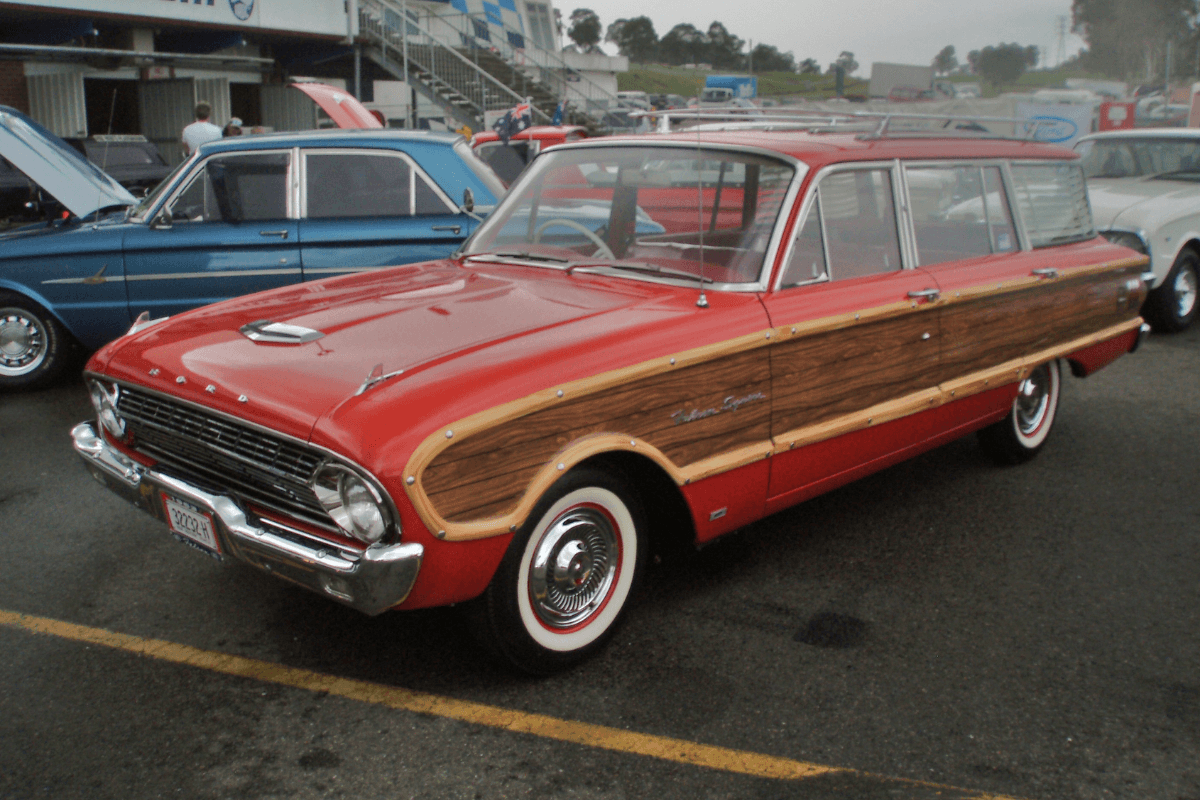
“Woody” refers to a type of car, typically a station wagon, that features wooden panels on the sides or rear of the vehicle.
These cars were popular in the 1940s and 1950s, particularly as family vehicles or for beach outings.
The term “woody” evokes a sense of nostalgia and is often used for vintage cars that are prized for their classic style.
Examples in sentences:
- “He restored a classic woody, bringing it back to life with original wood paneling and vintage details.”
- “Their beach trip was complete with the classic woody, the perfect vehicle for a family day out.”
- “The woody’s wooden panels added a touch of charm and elegance that made it stand out at the car show.”
- “She drove her dad’s old woody, a piece of automotive history that still turned heads.”
- “The woody was a beloved car, symbolizing a time when road trips were all about the journey and the family.”
Yugo
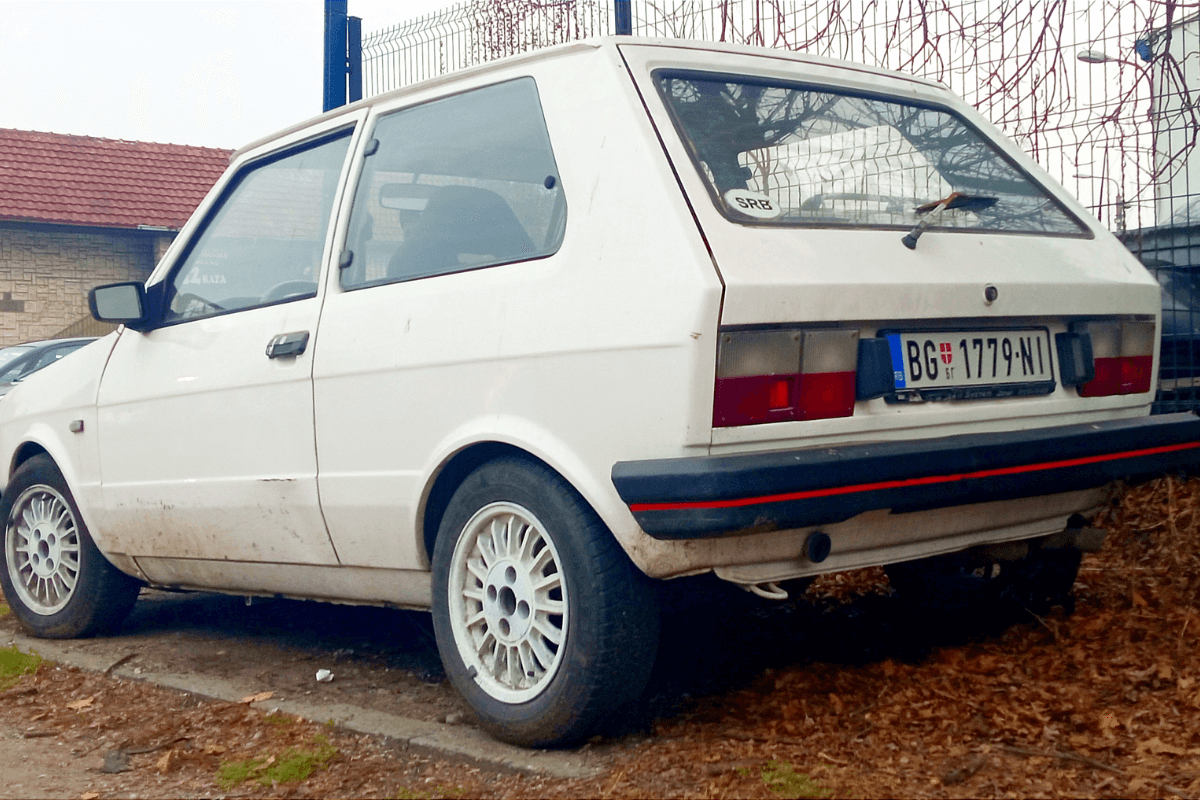
“Yugo” refers to a small, low-cost car manufactured by the Yugo company, which gained popularity in the 1980s and 1990s.
The Yugo was known for its affordability but also its reputation for poor quality and reliability.
Over time, the term “Yugo” became synonymous with cars that are seen as cheap, underpowered, or prone to breaking down.
Examples in sentences:
- “He joked that his Yugo was the most reliable car he’d ever owned, even though it broke down every week.”
- “The Yugo was known for being one of the least expensive cars on the market, but it had its fair share of issues.”
- “They drove an old Yugo, and it barely made it through the city streets, let alone on a highway.”
- “Despite its reputation, his Yugo had character, and it was a fun little car to drive.”
- “They were able to buy a cheap Yugo as their first car, but it definitely had its share of quirks.”
Zoomer
“Zoomer” refers to someone who drives fast or a car that is known for its speed.
It’s a term that can describe both the driver and the car, typically used in the context of street racing or performance driving.
A zoomer is someone who enjoys the thrill of fast driving and the excitement of pushing their car to its limits.
Examples in sentences:
- “The zoomer took off down the track, his car leaving everyone else behind in the dust.”
- “She loved being a zoomer, feeling the rush of speed as she raced around the streets.”
- “His zoomer car was built for speed, with a turbo engine and sleek body that screamed performance.”
- “The zoomer’s car was a blur as it sped down the highway, easily overtaking other vehicles.”
- “He prided himself on being a zoomer, always chasing the thrill of the fastest cars.”

